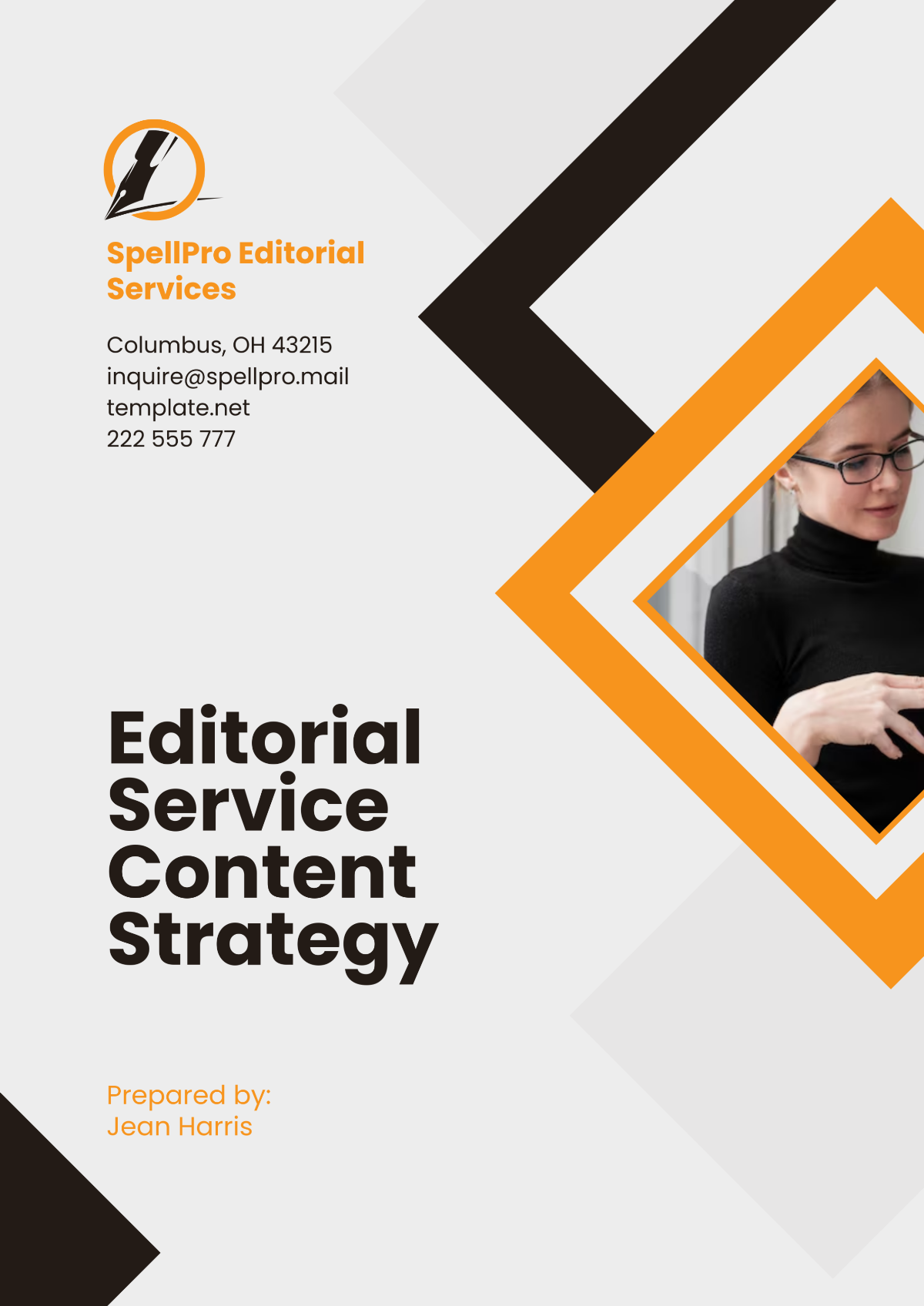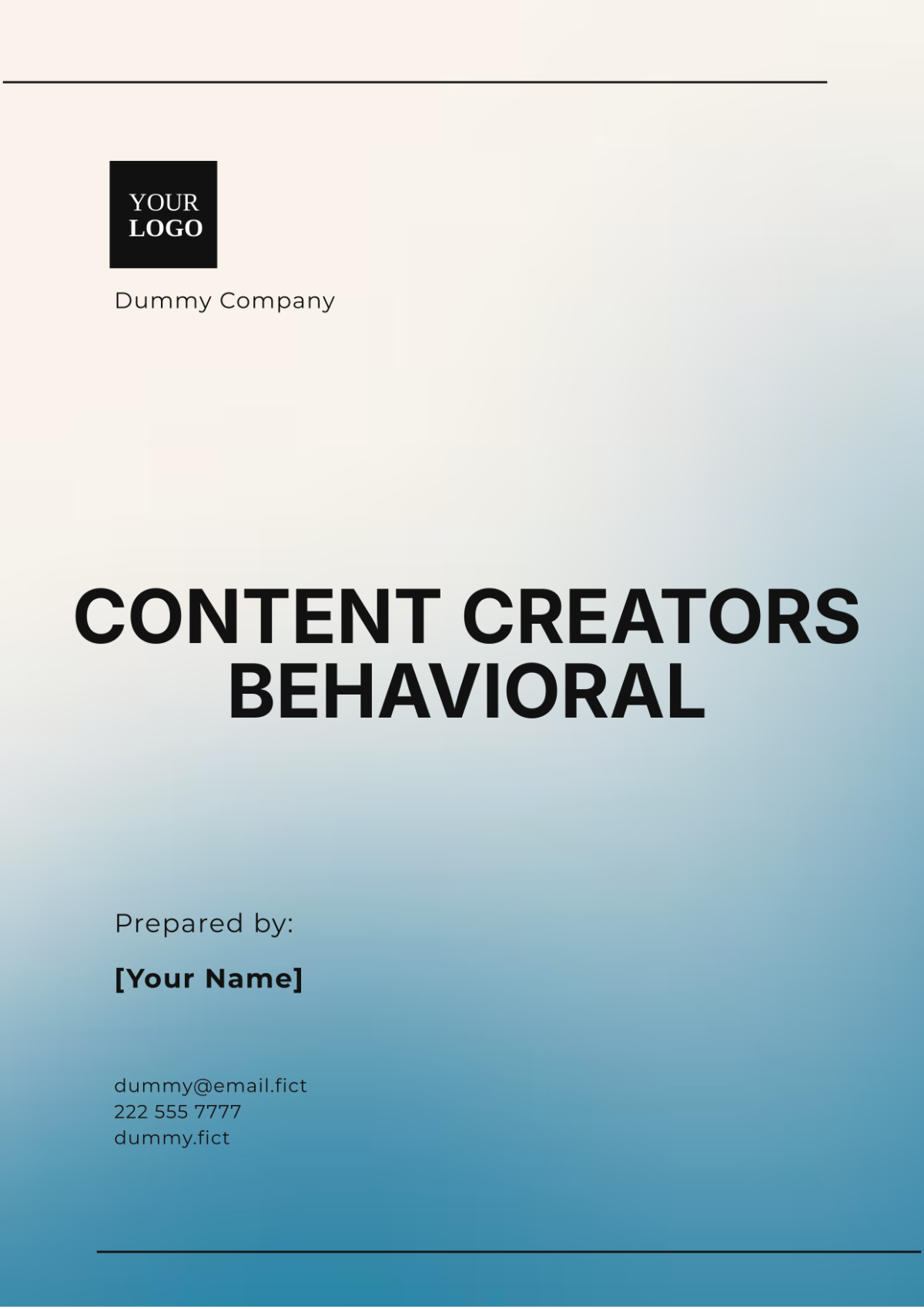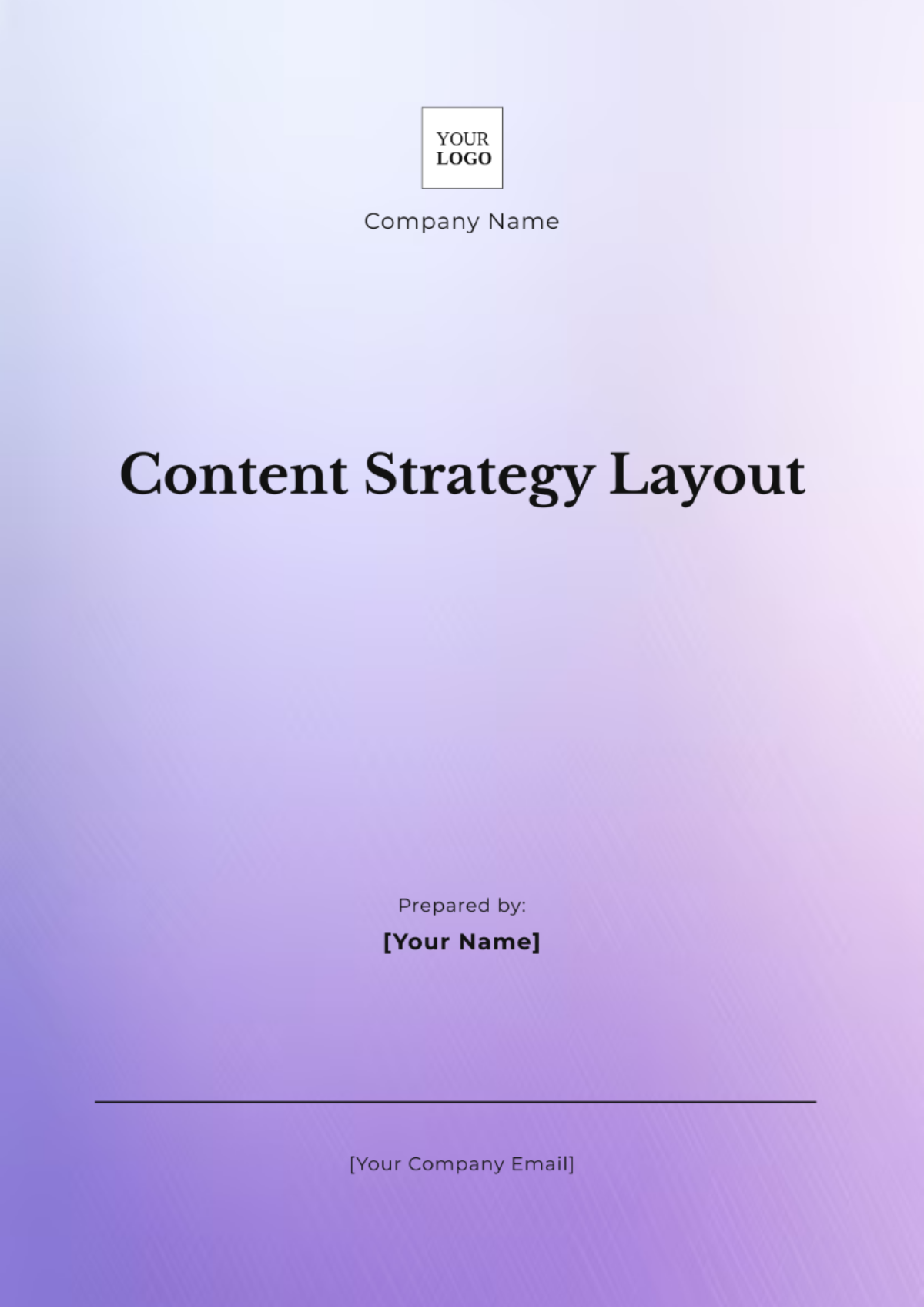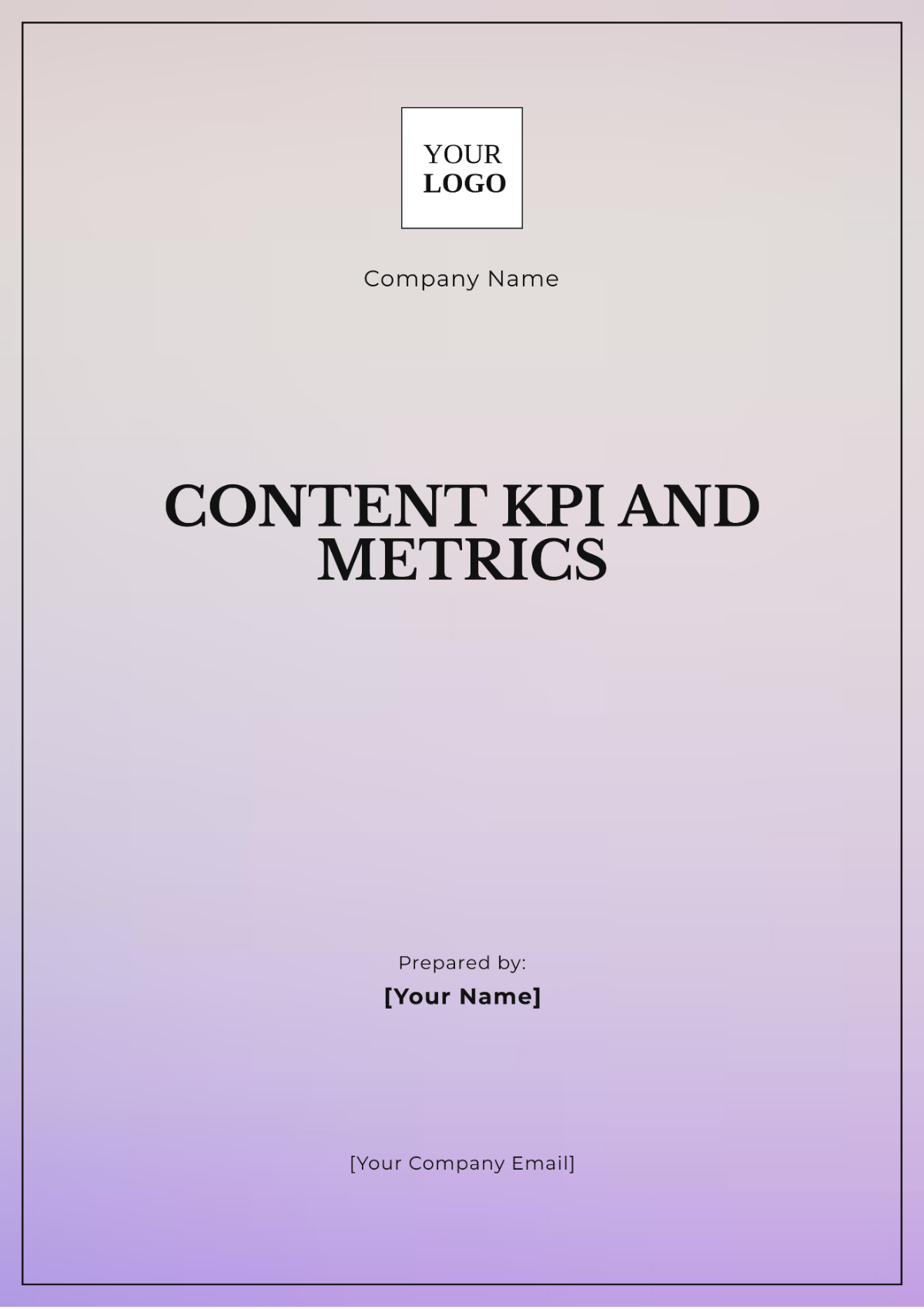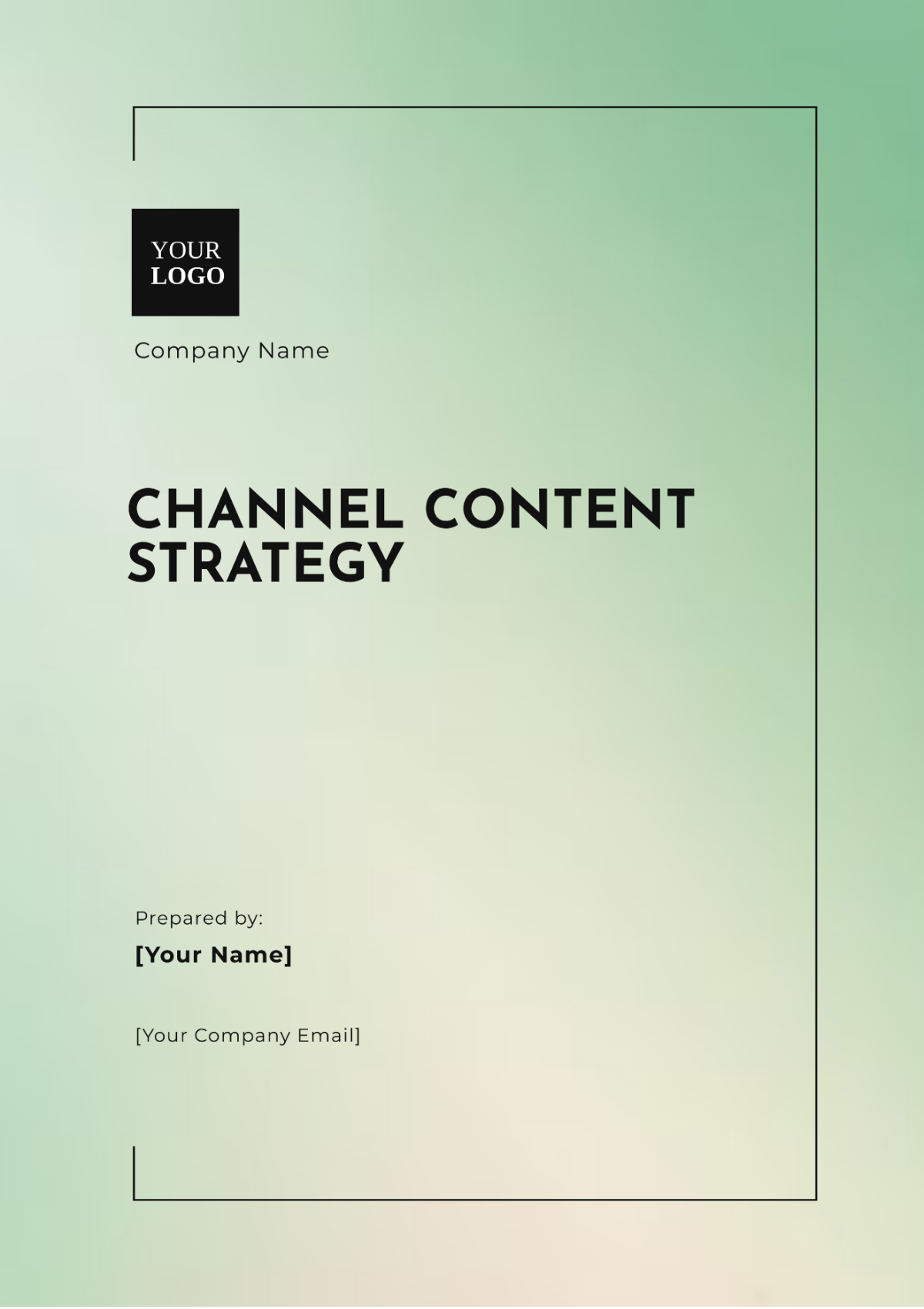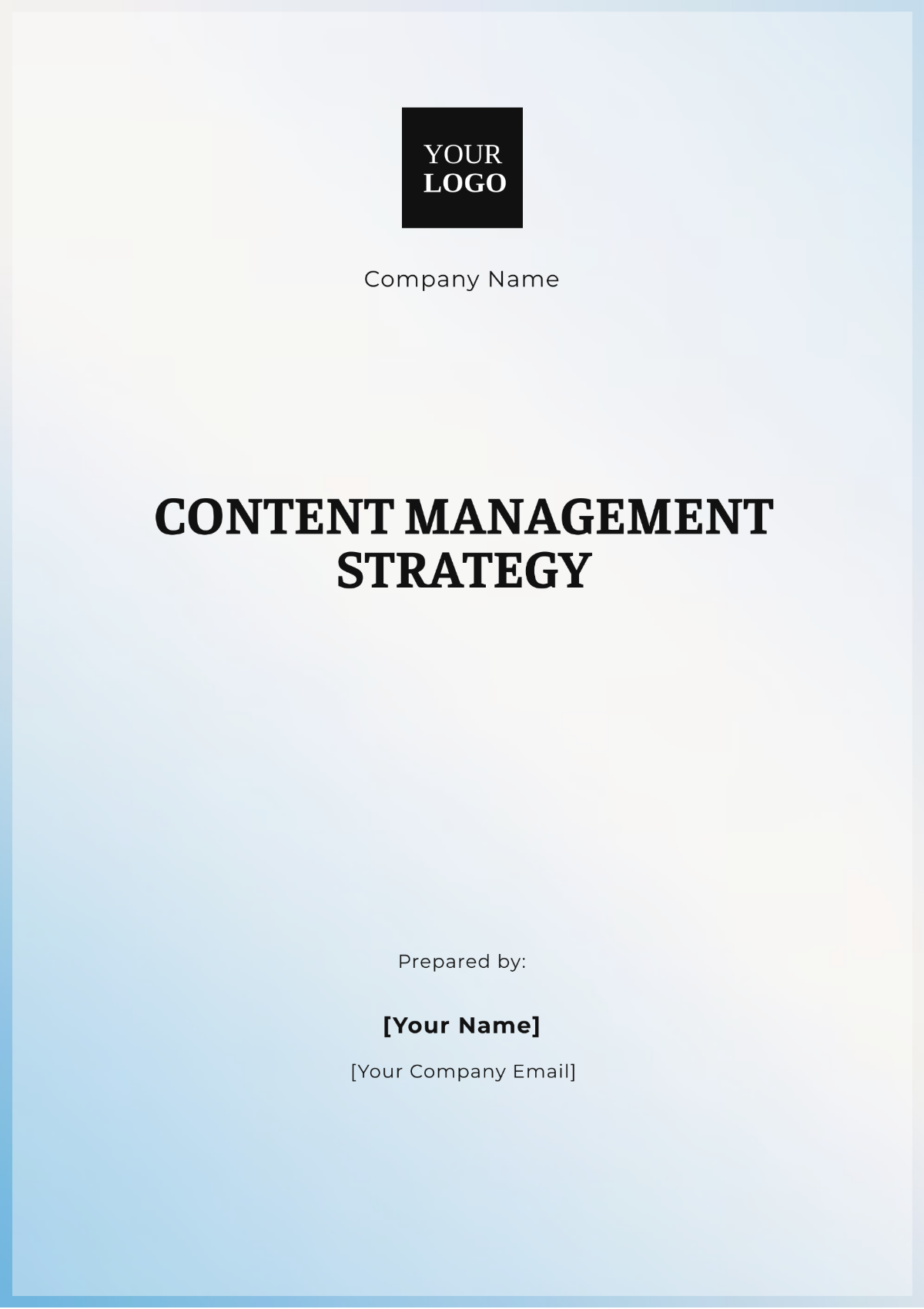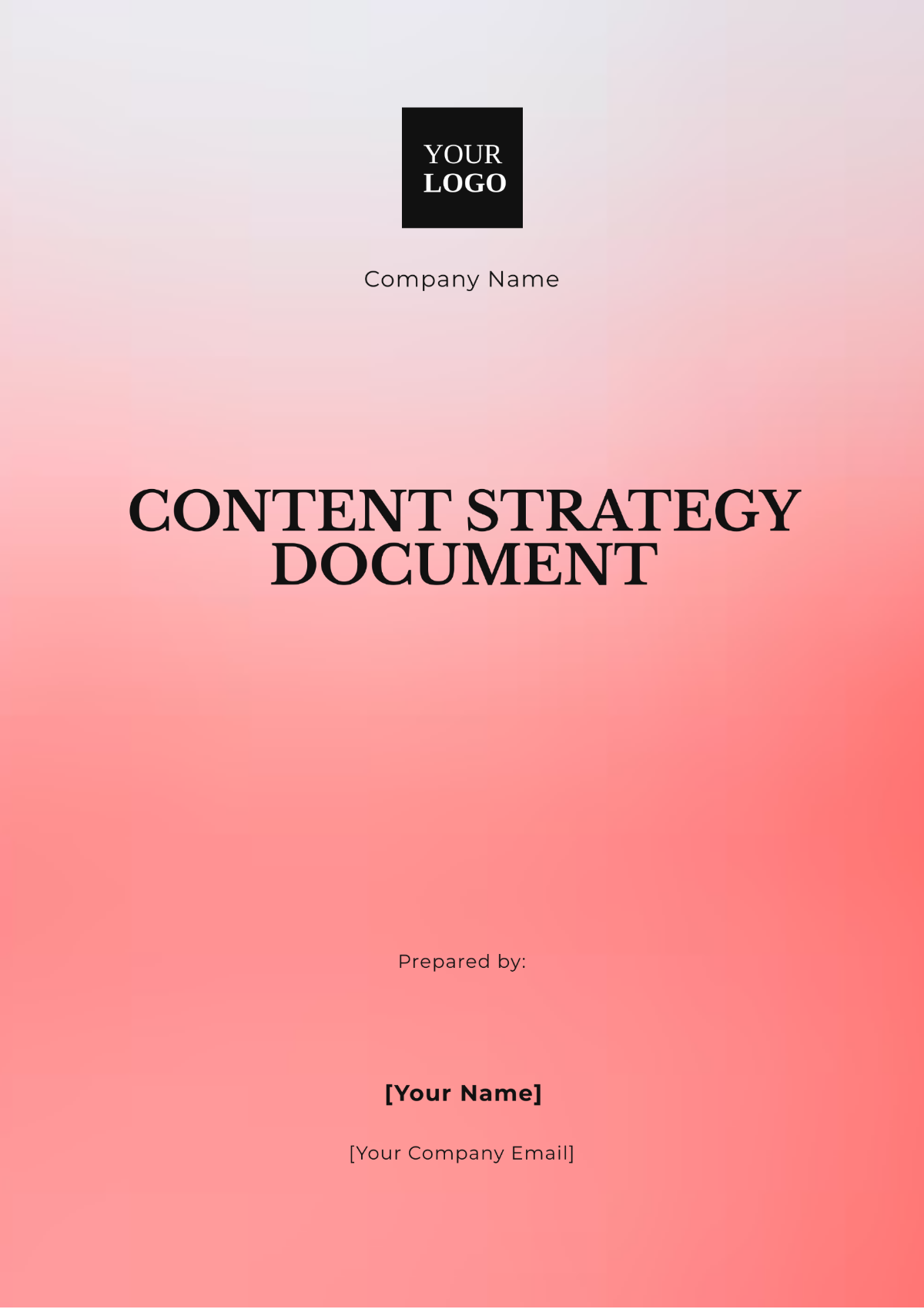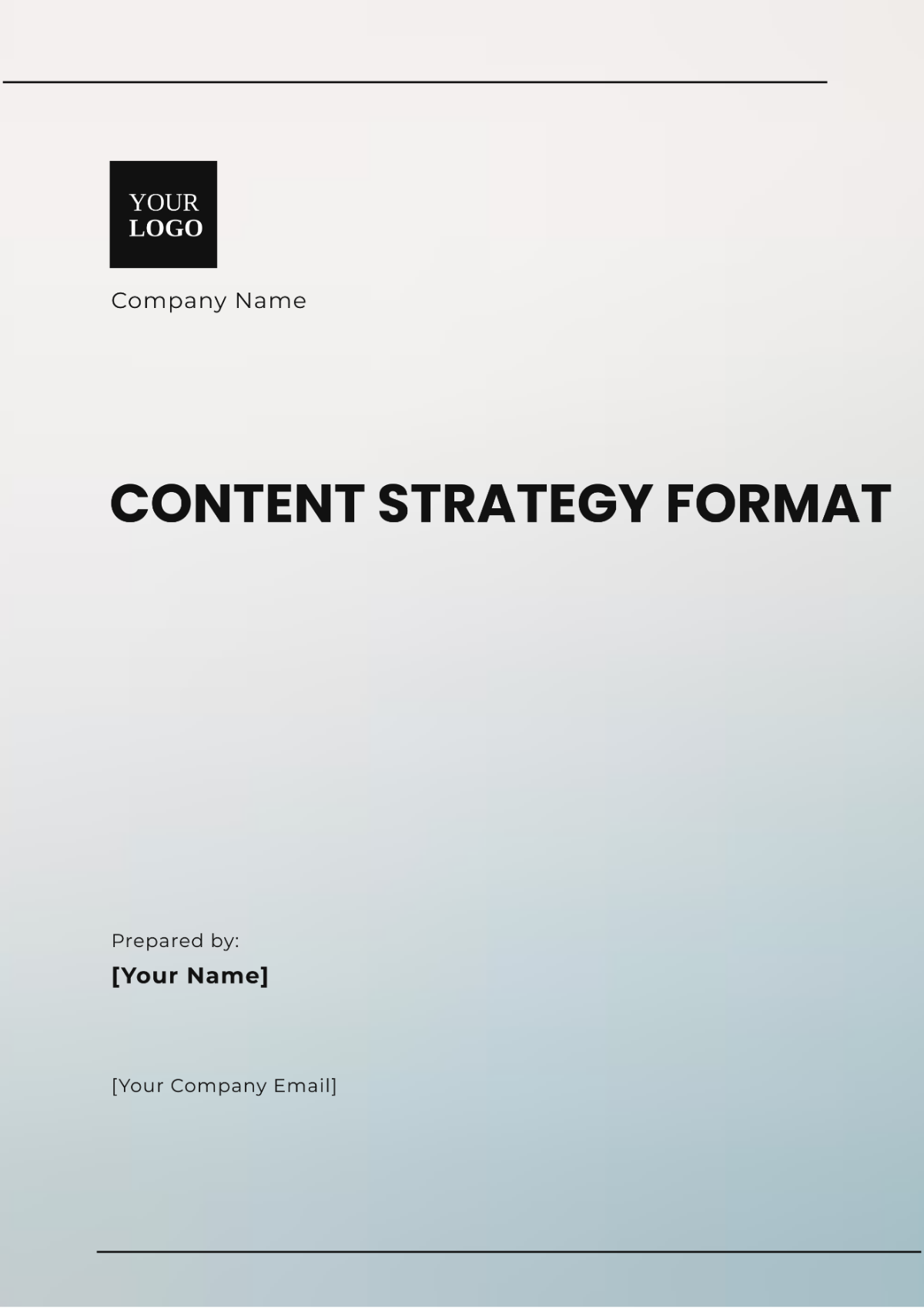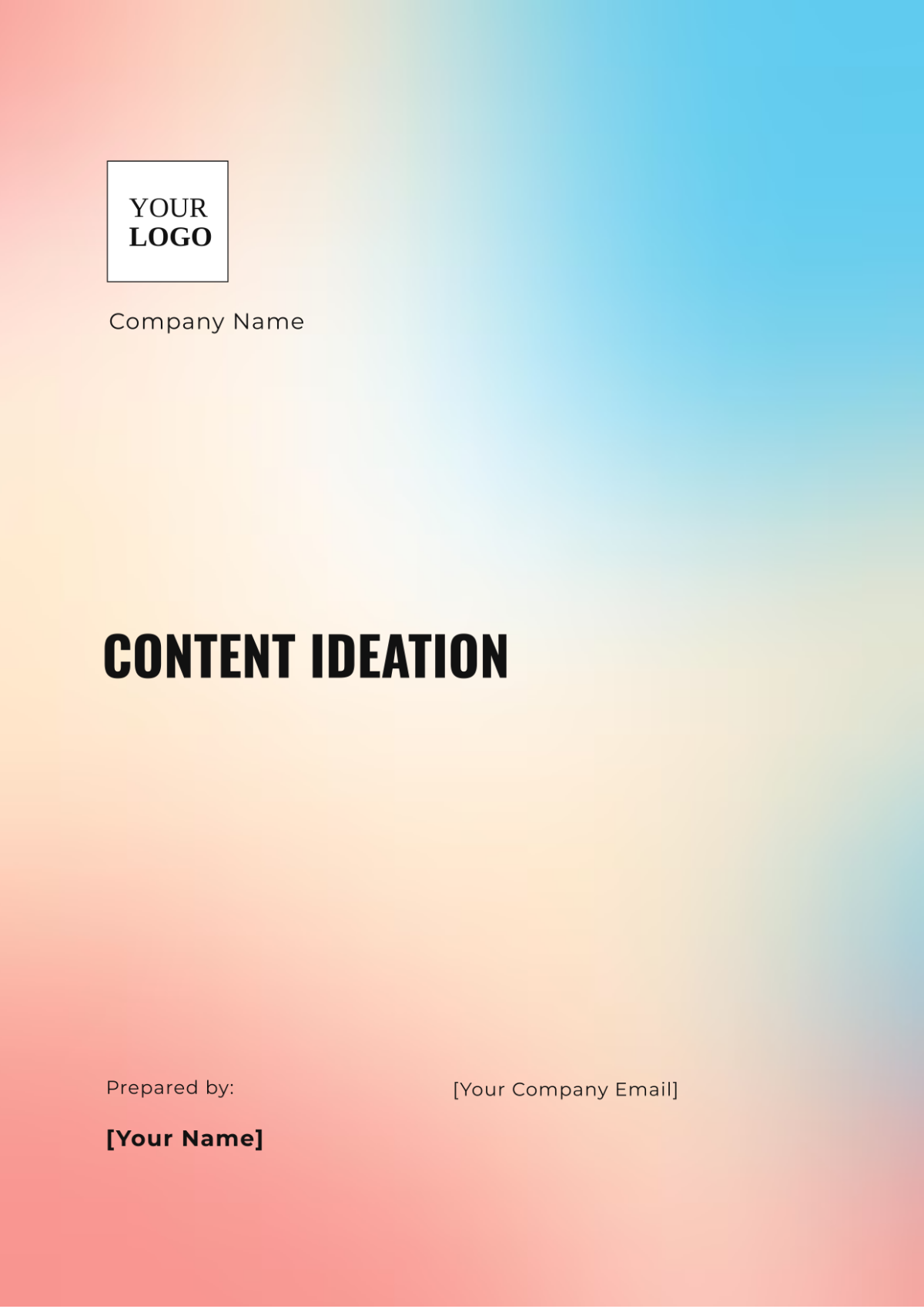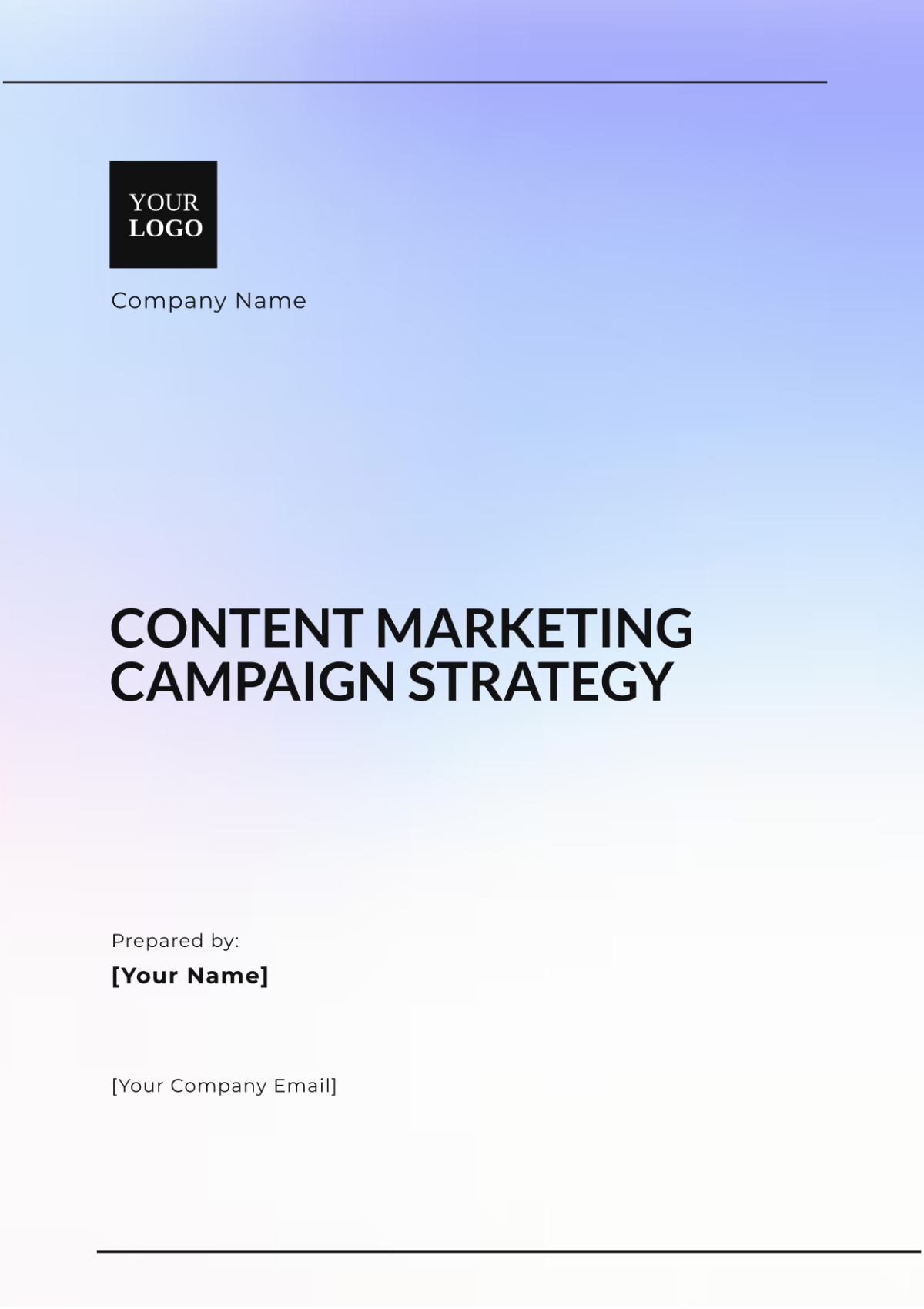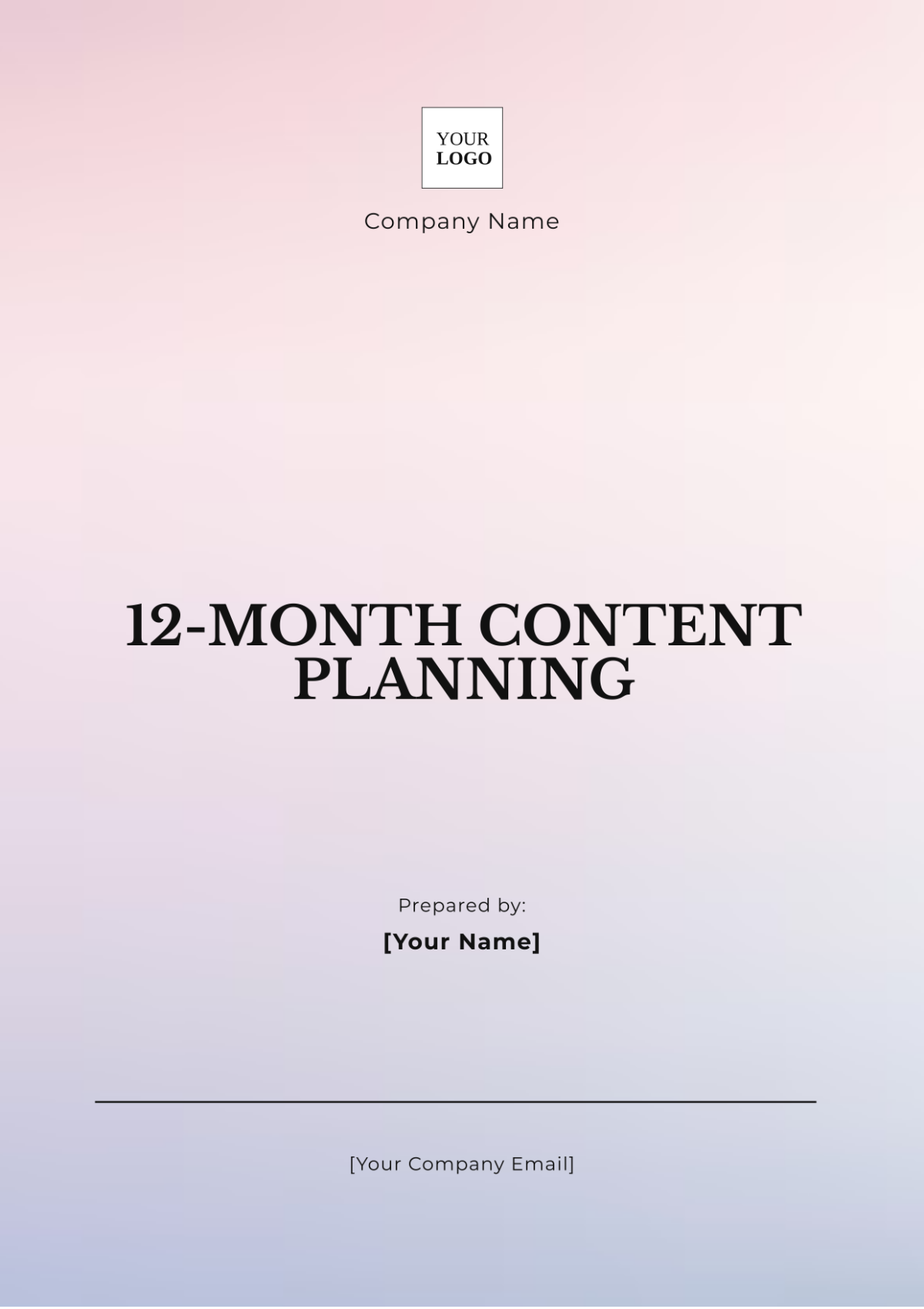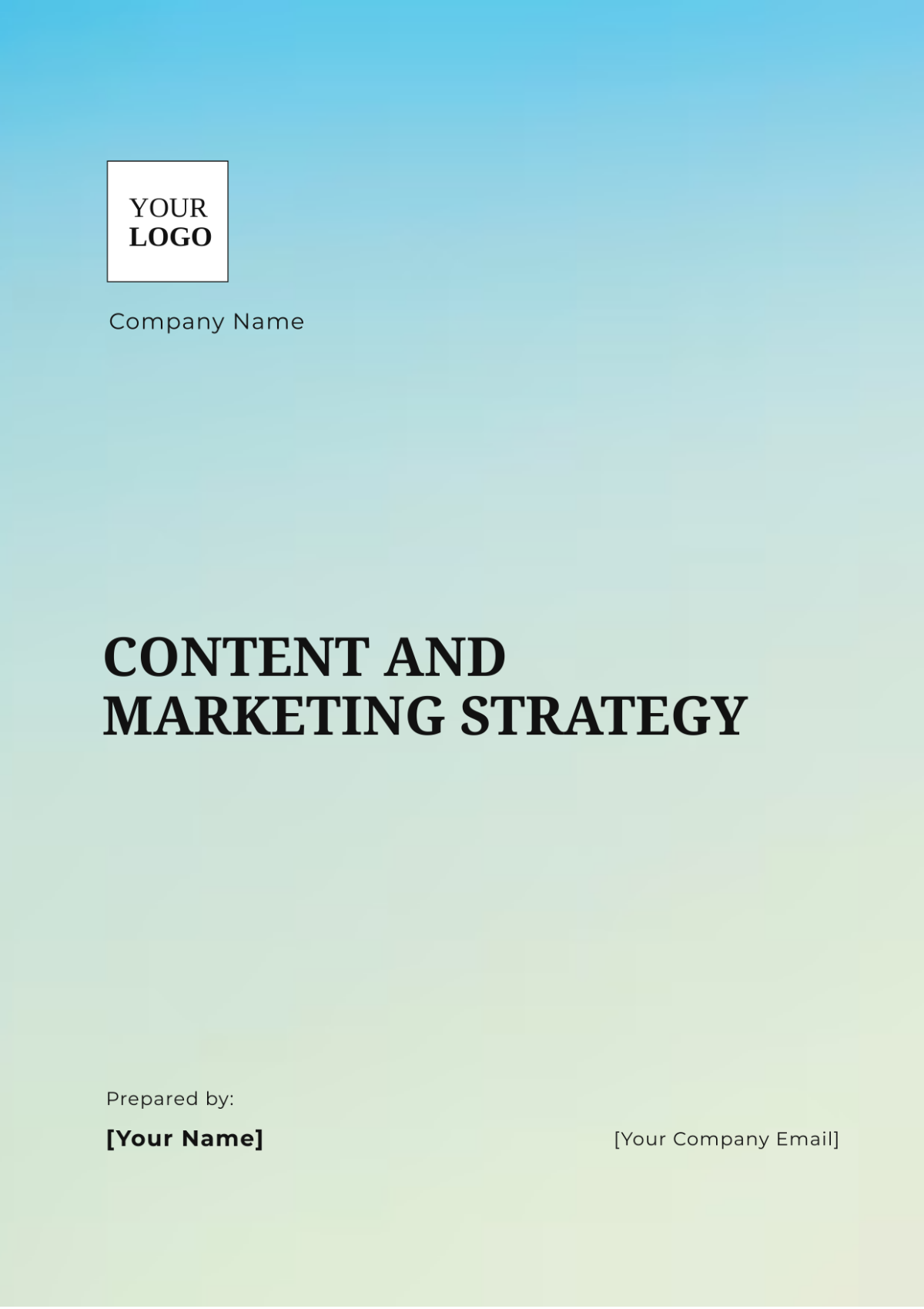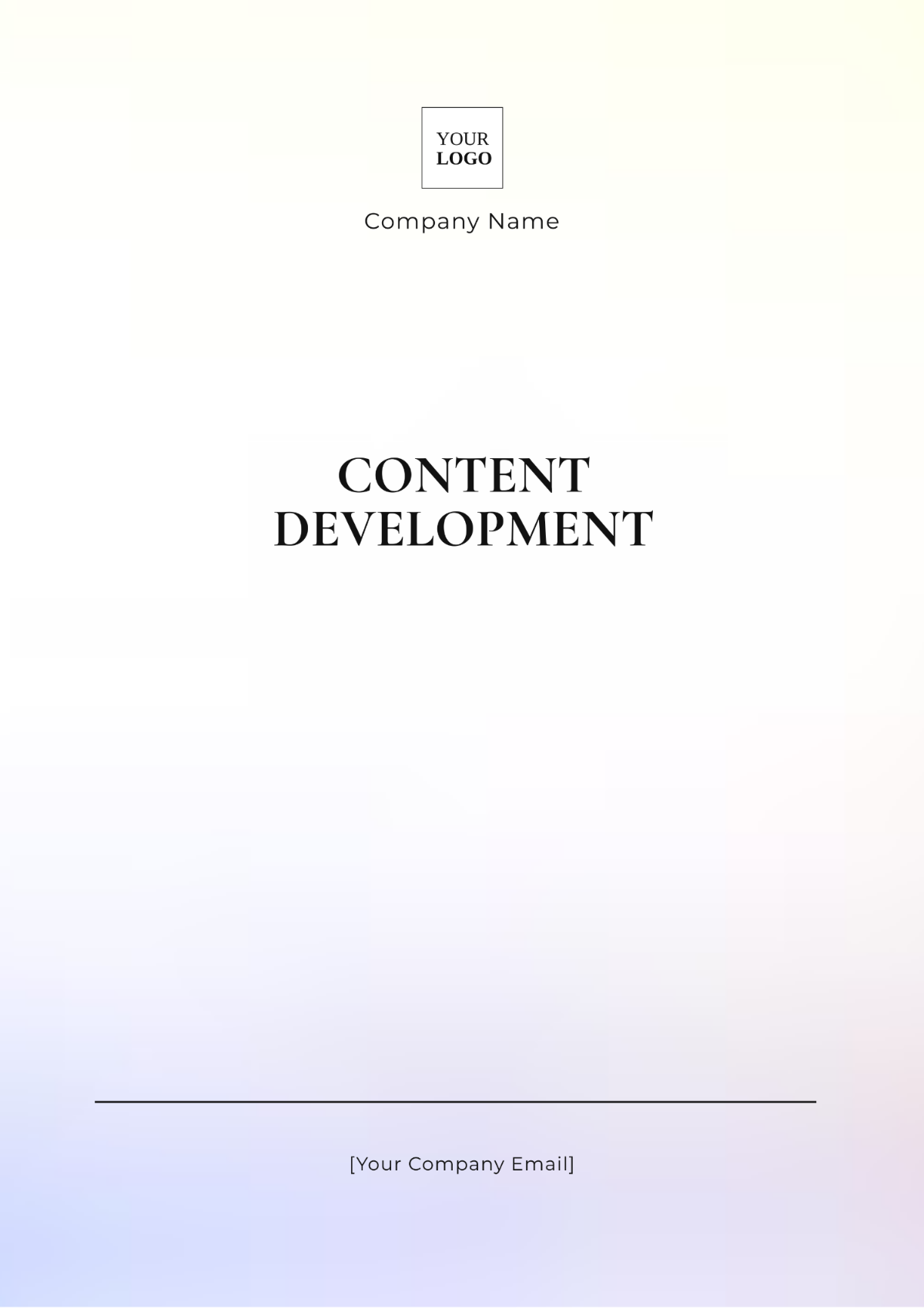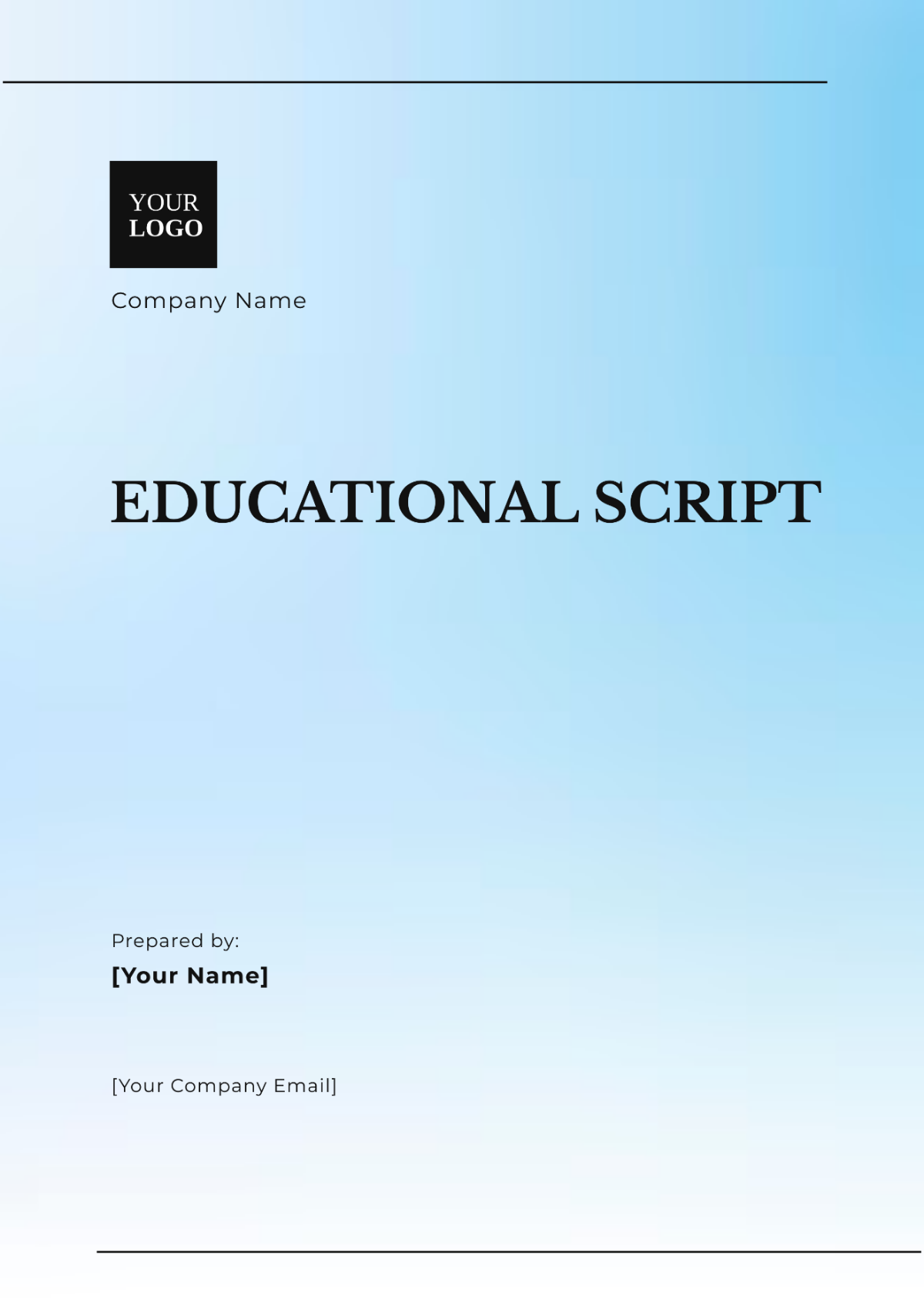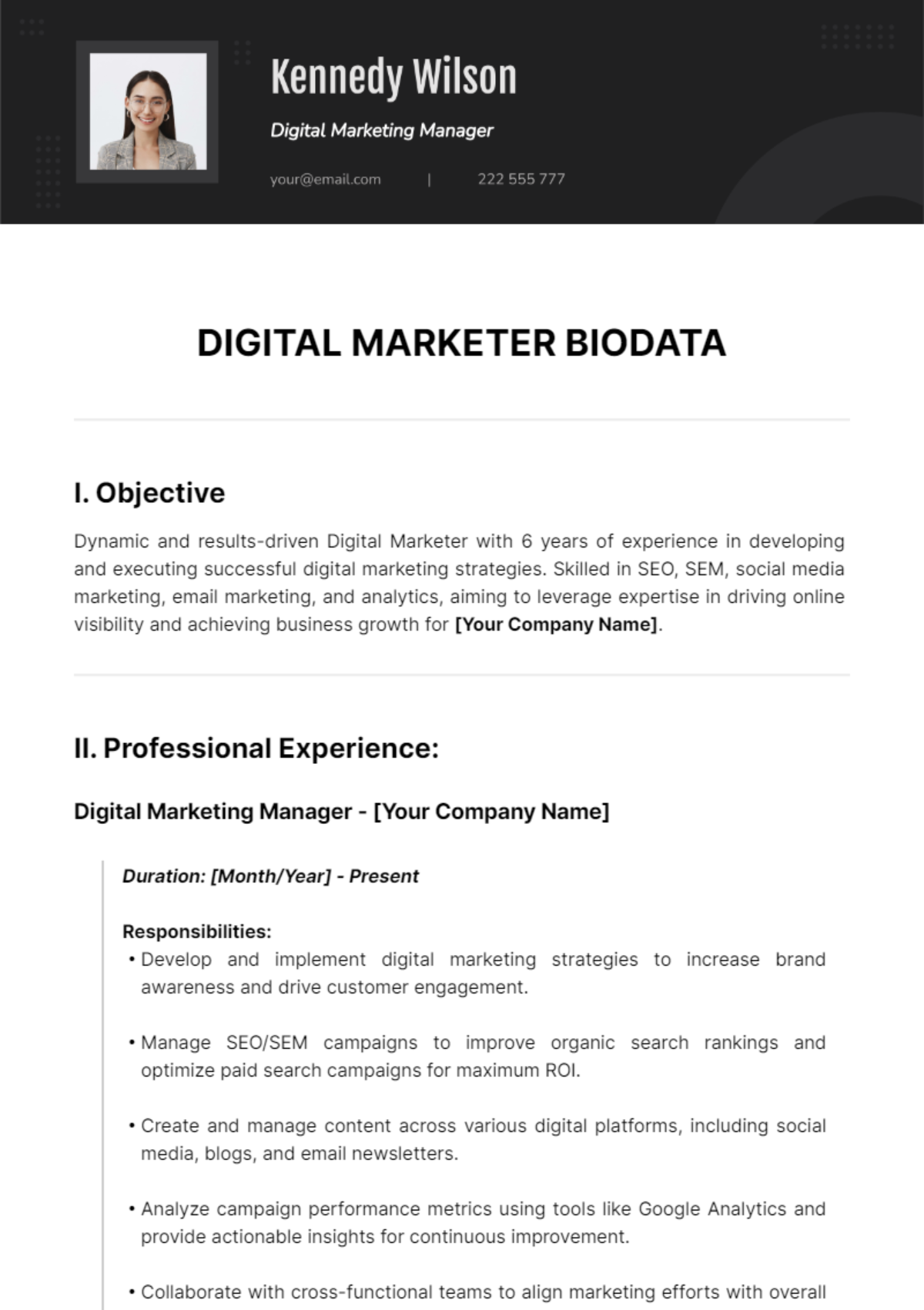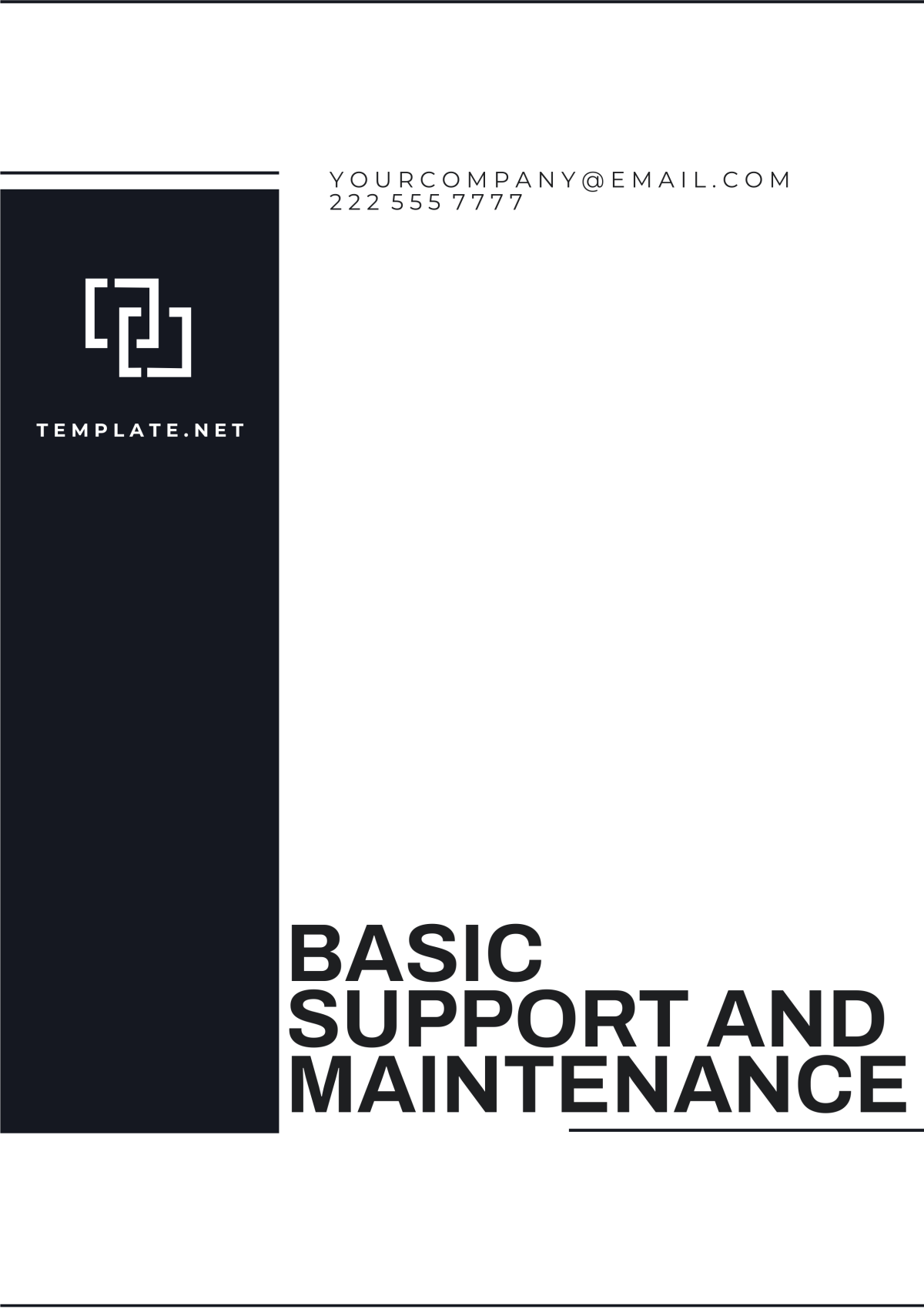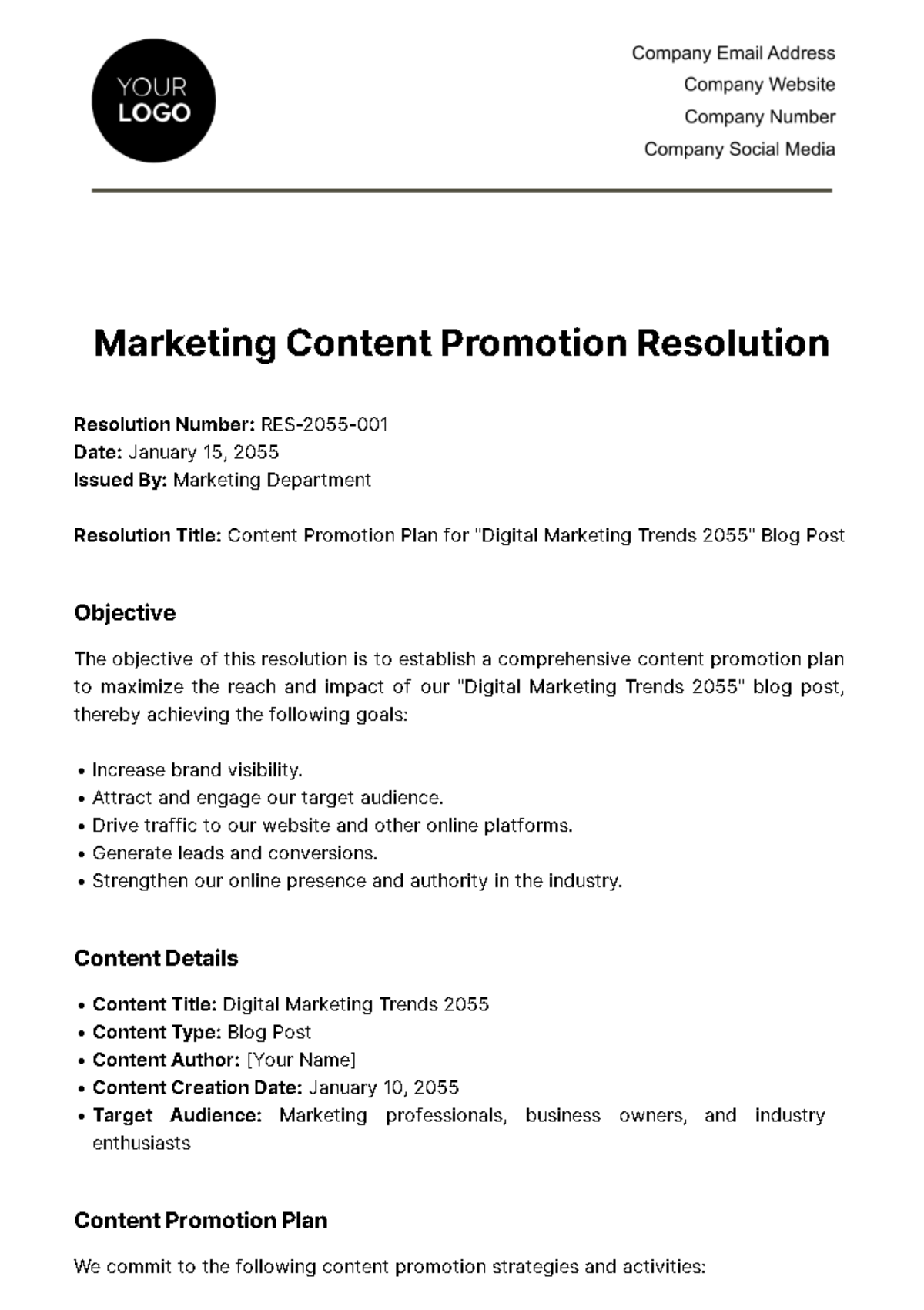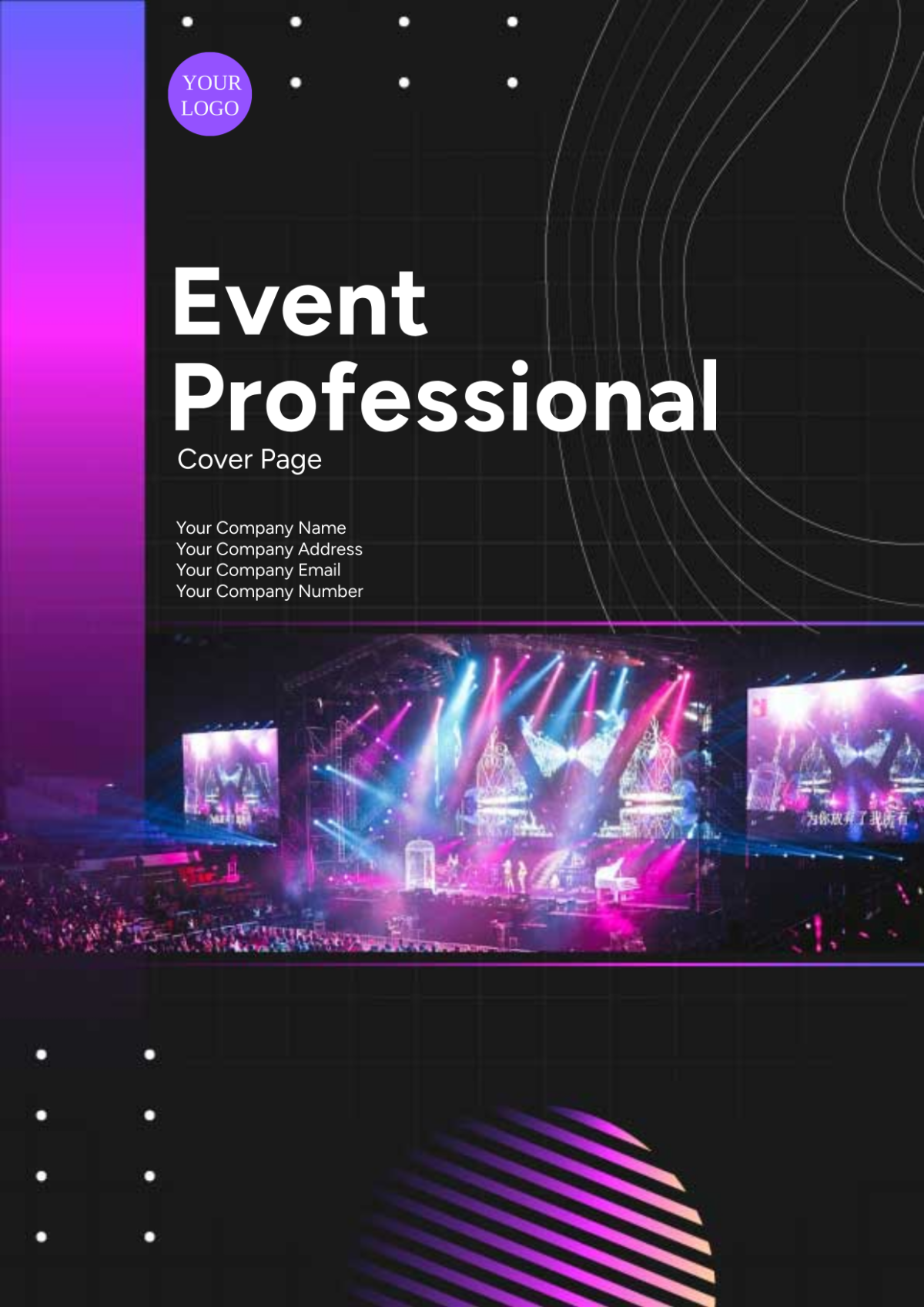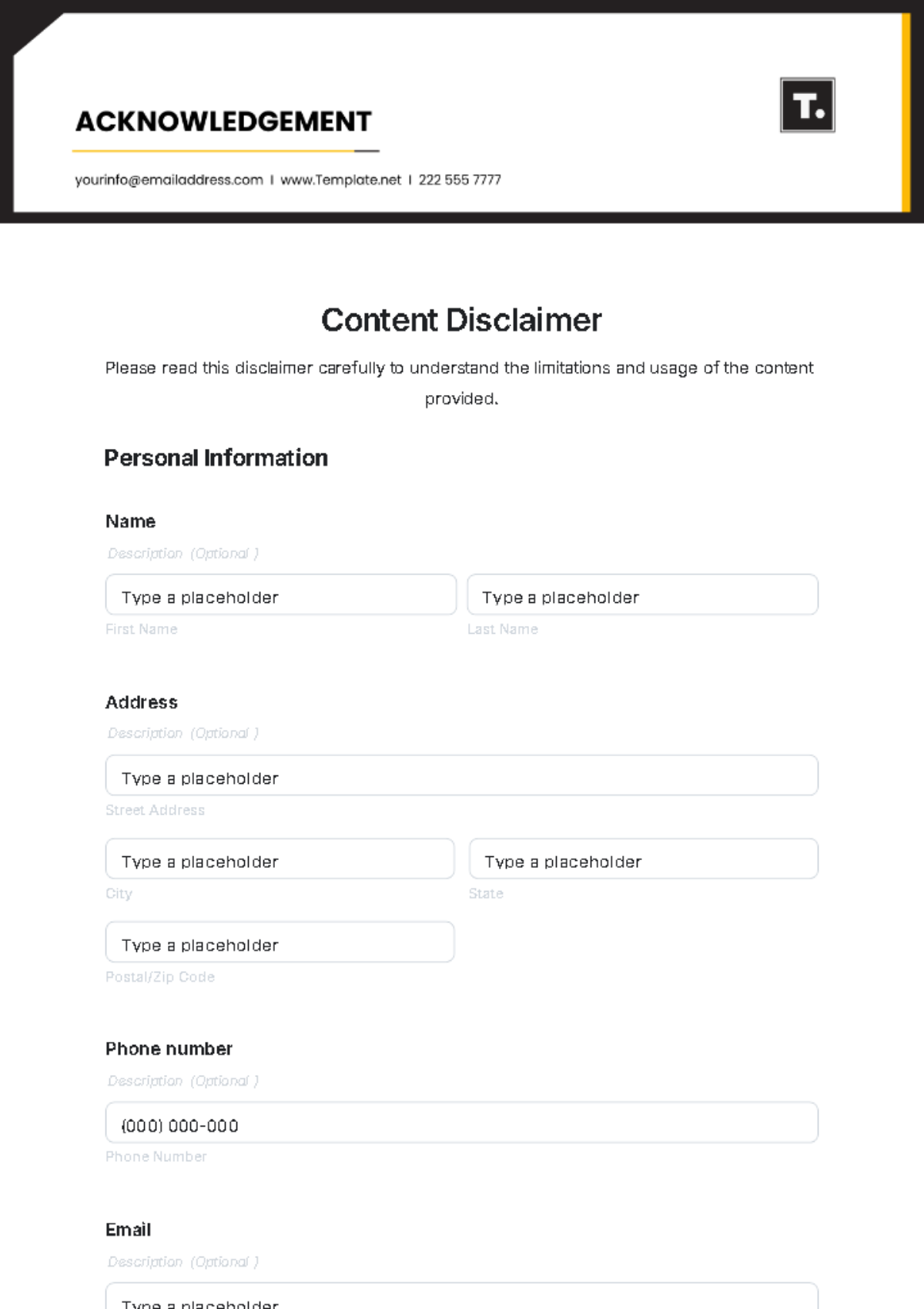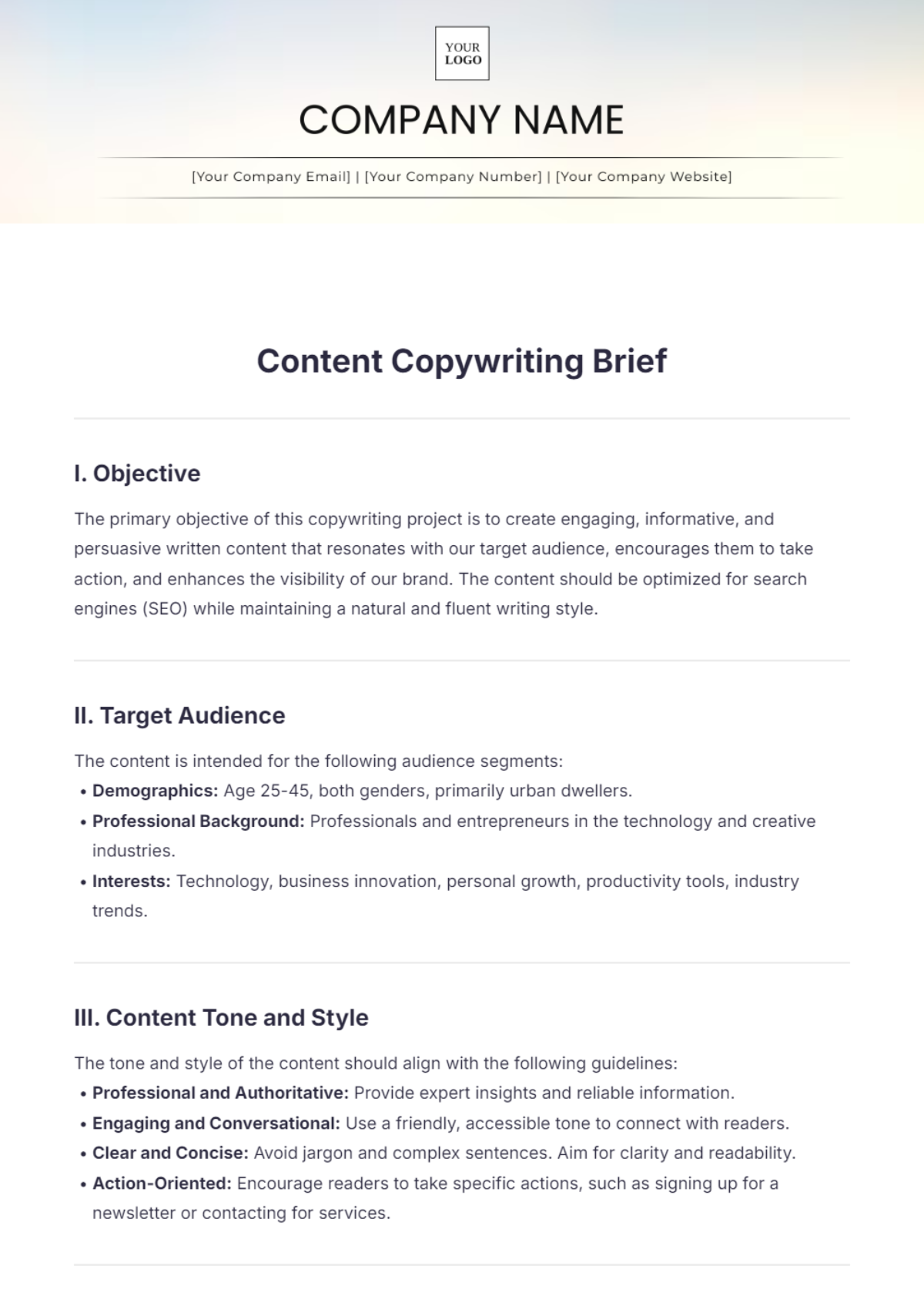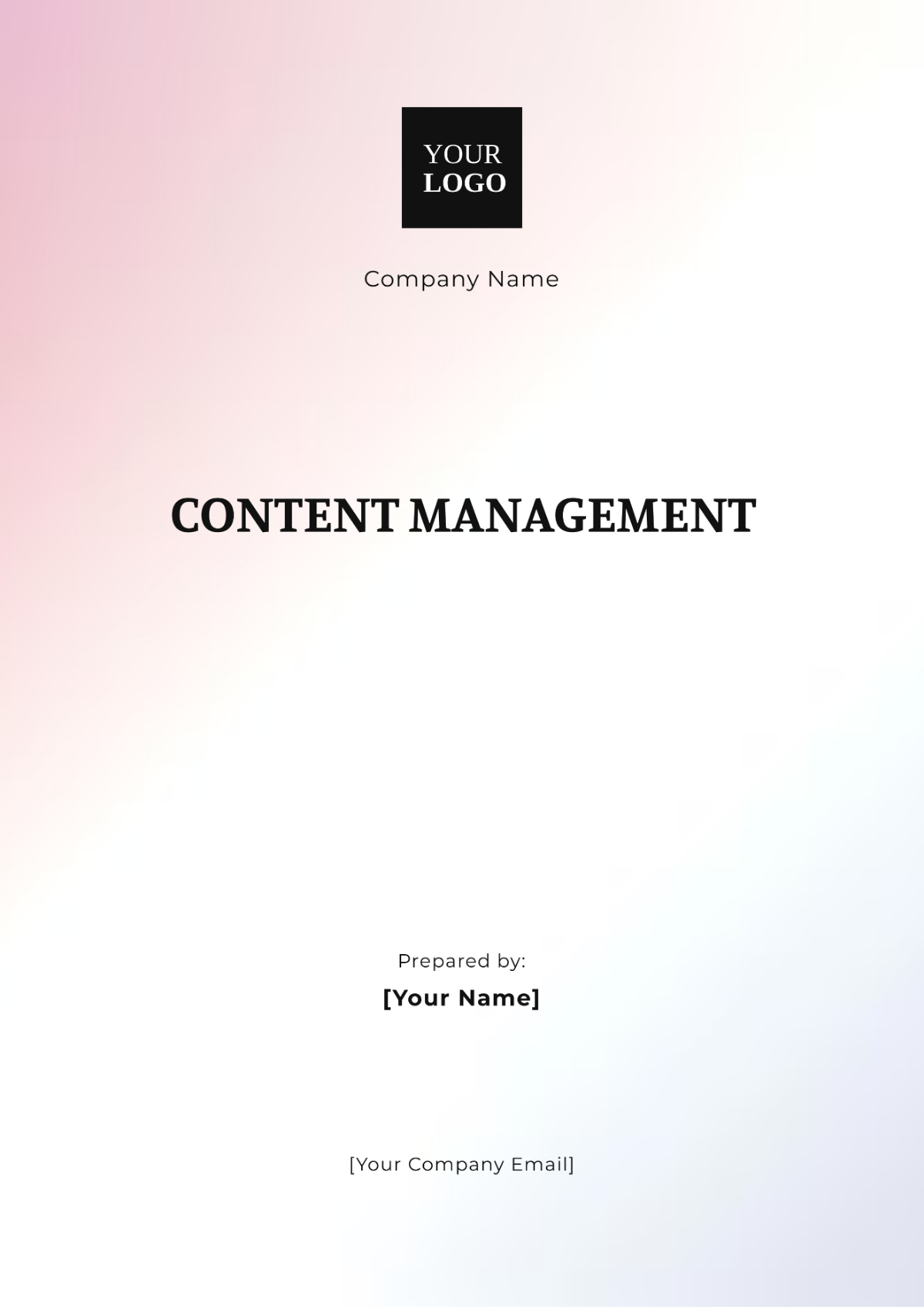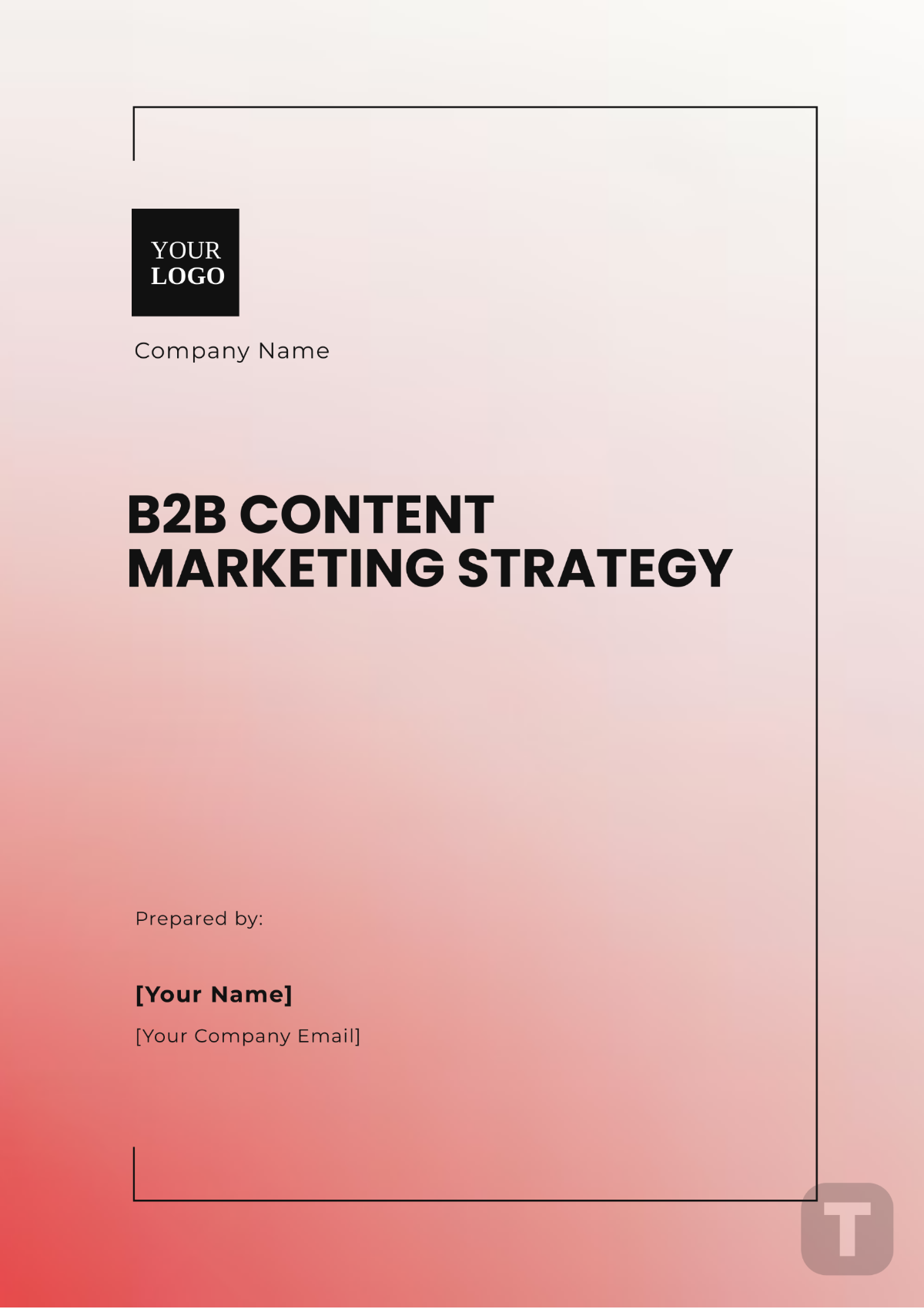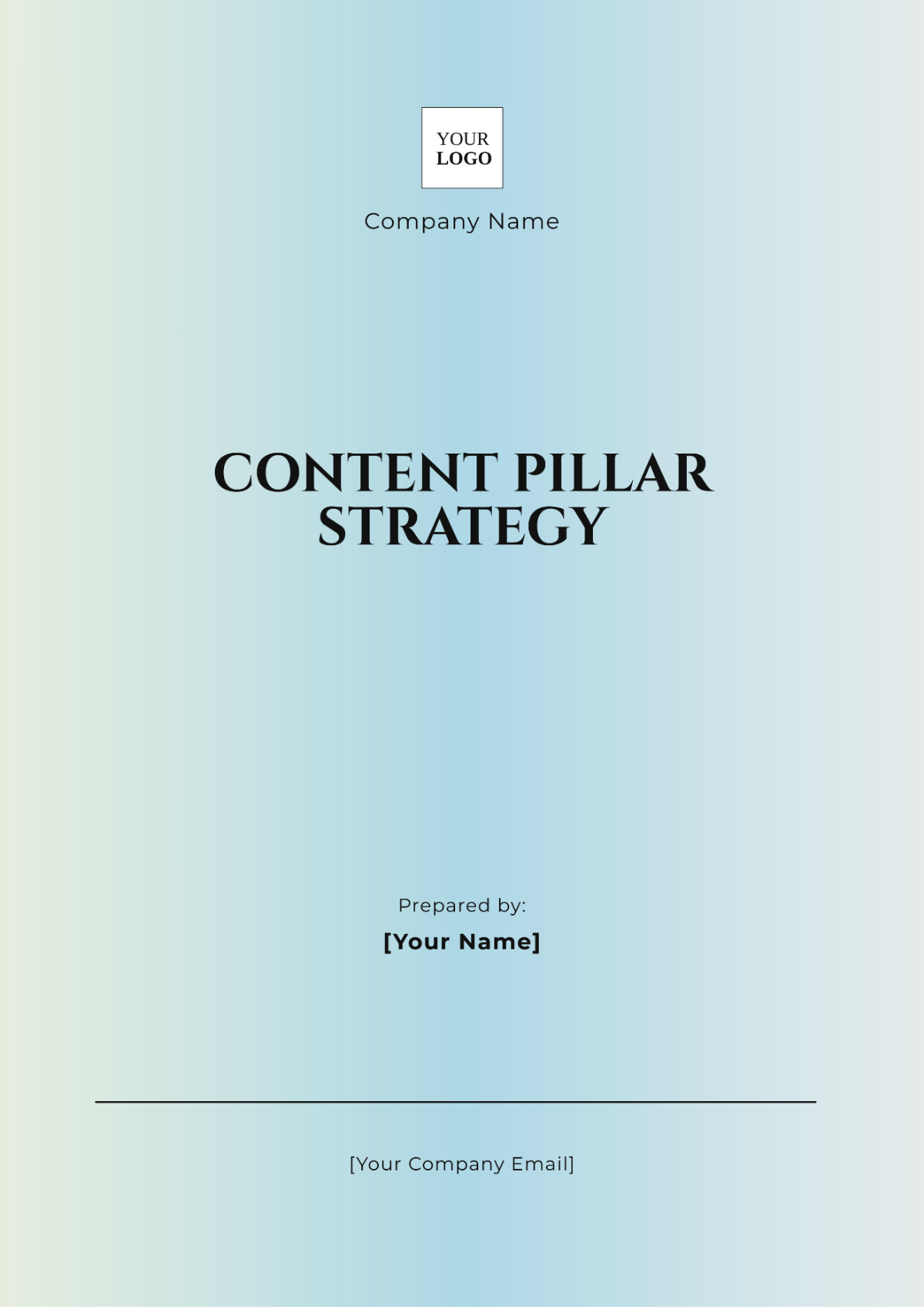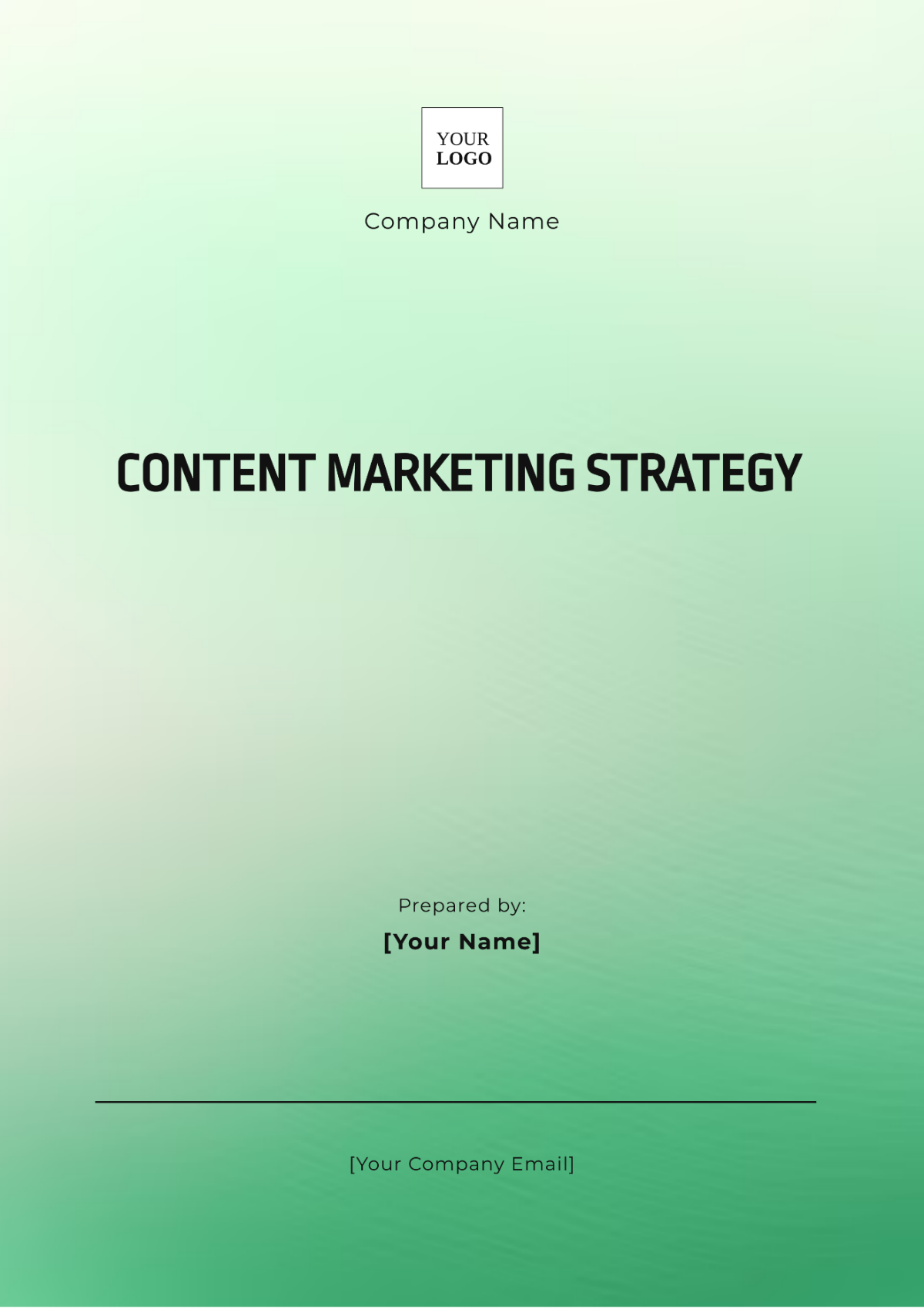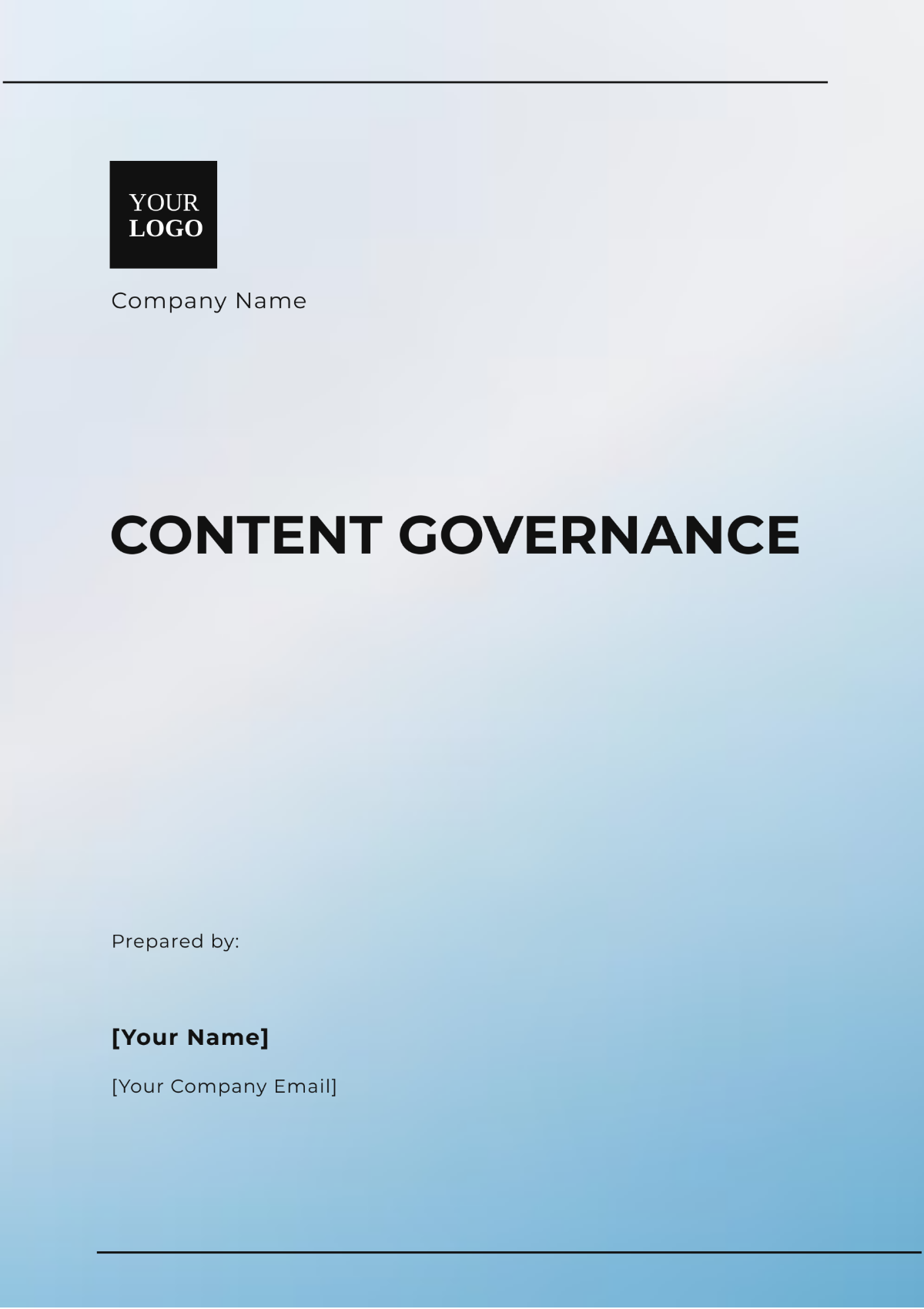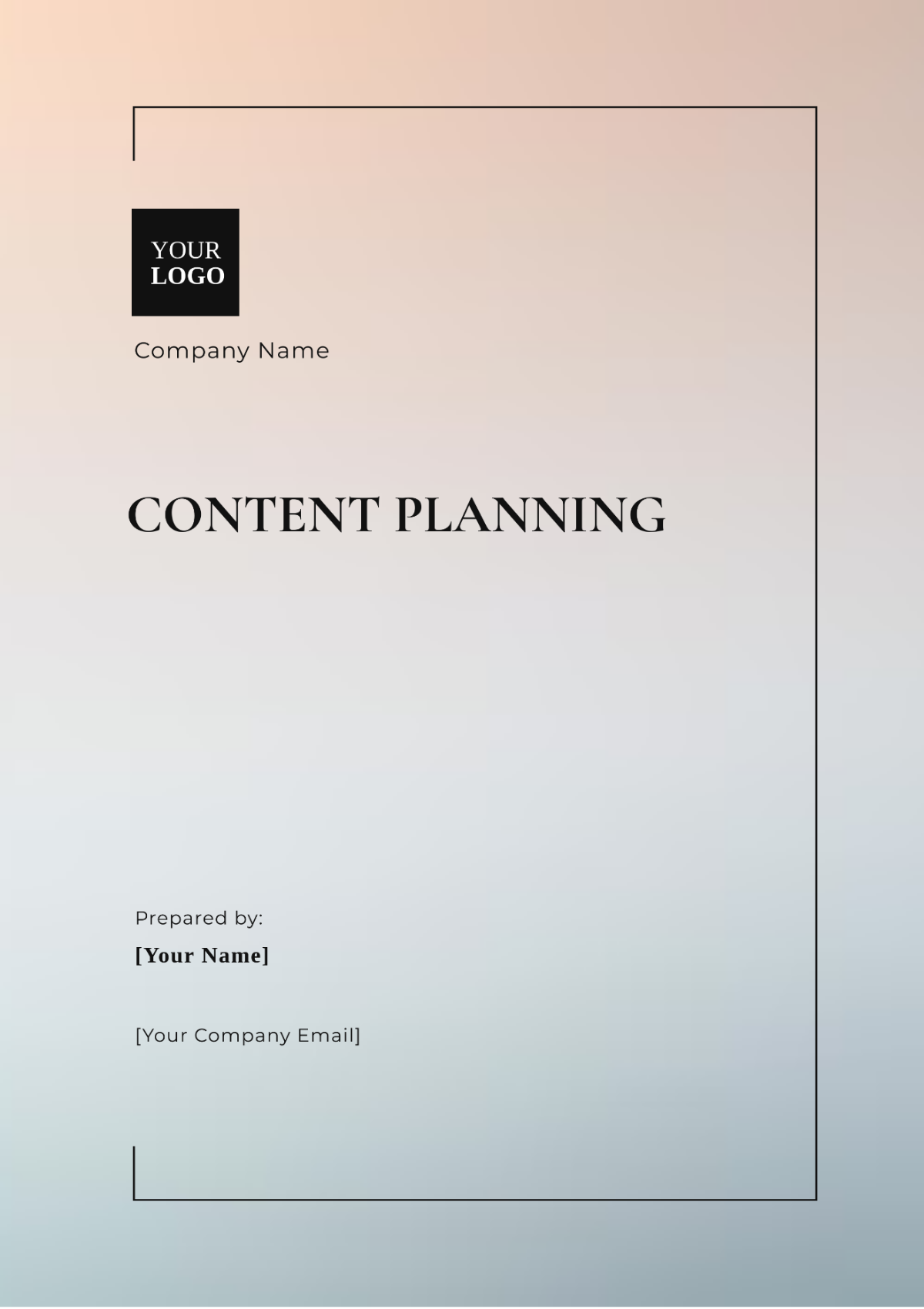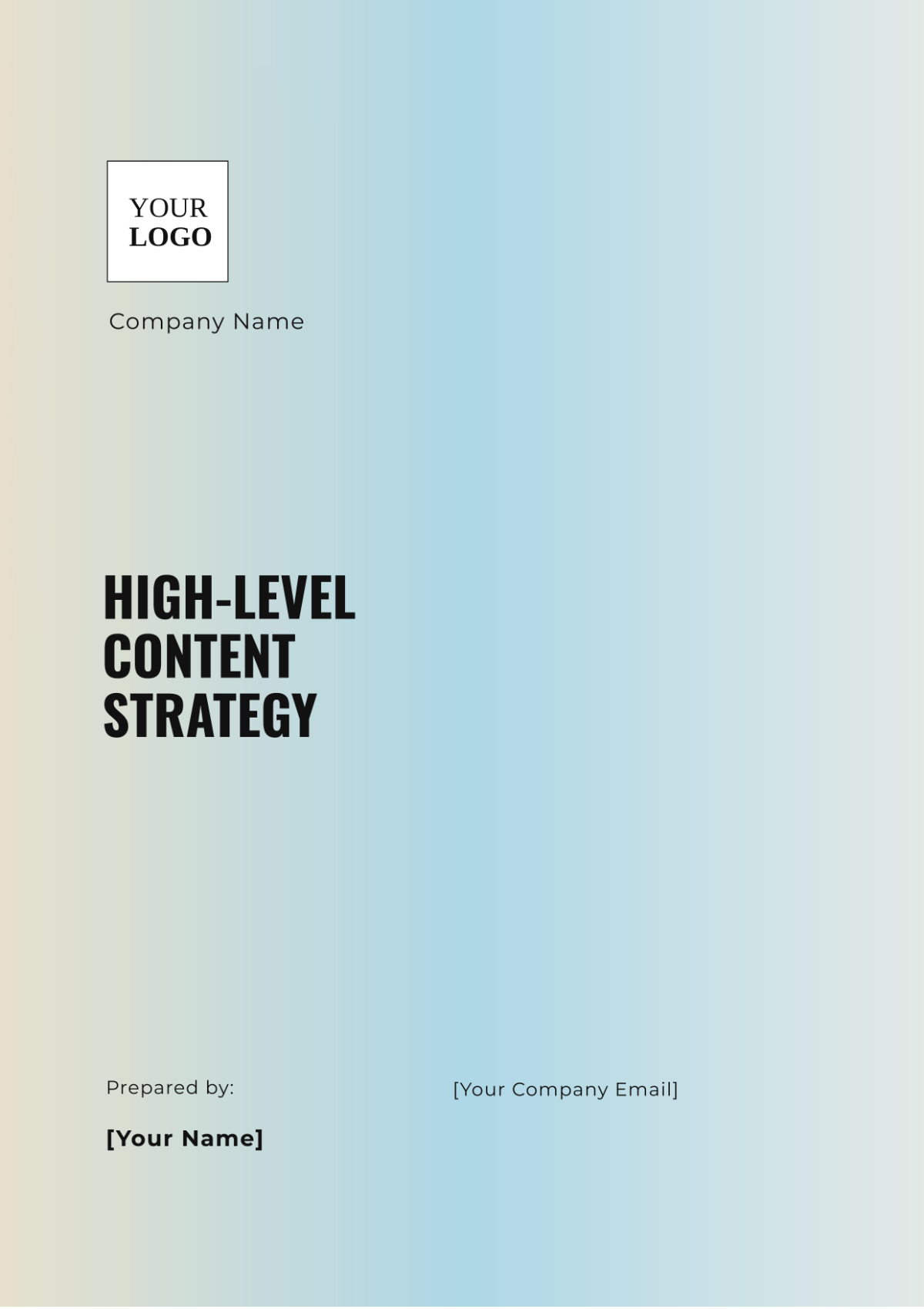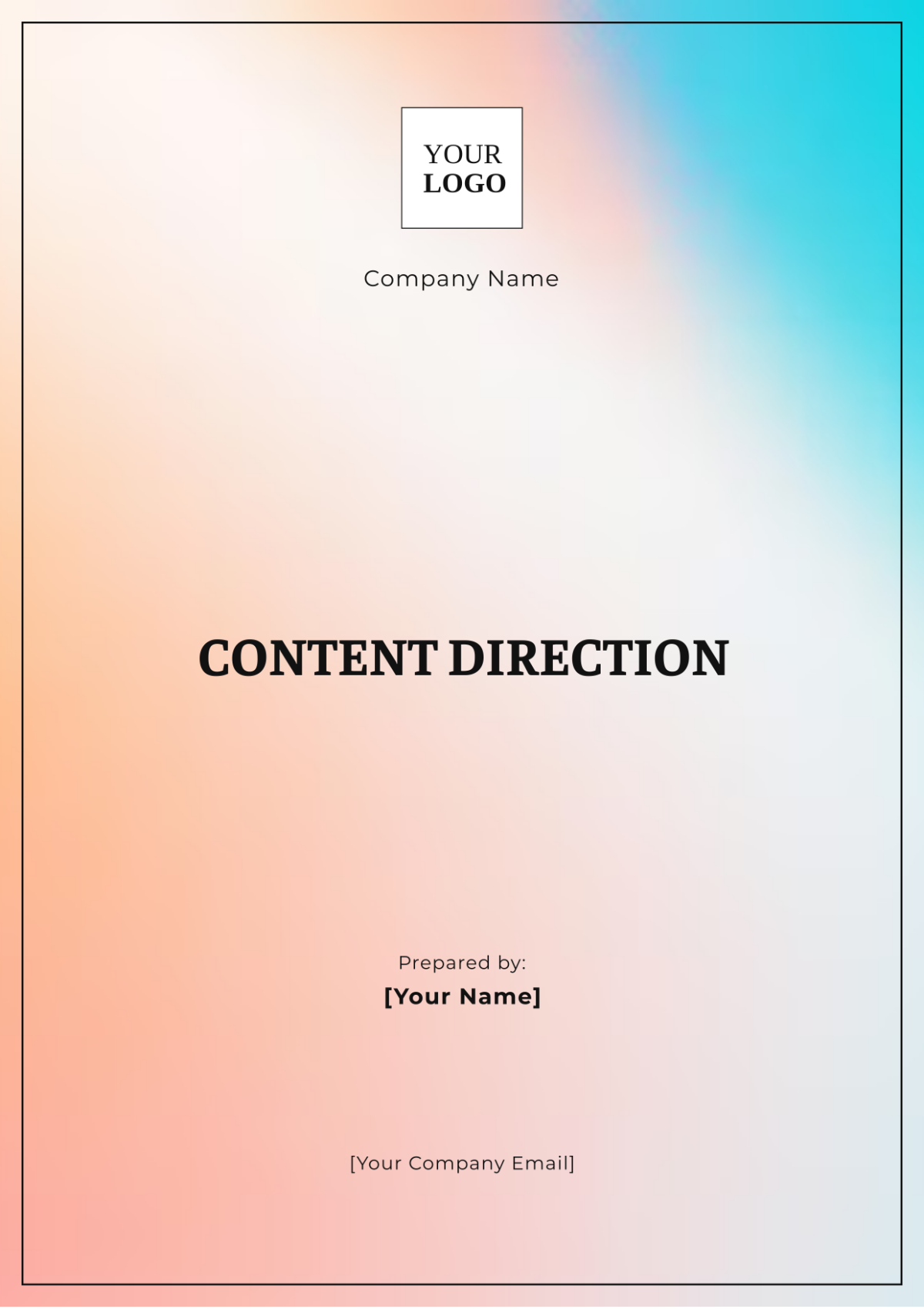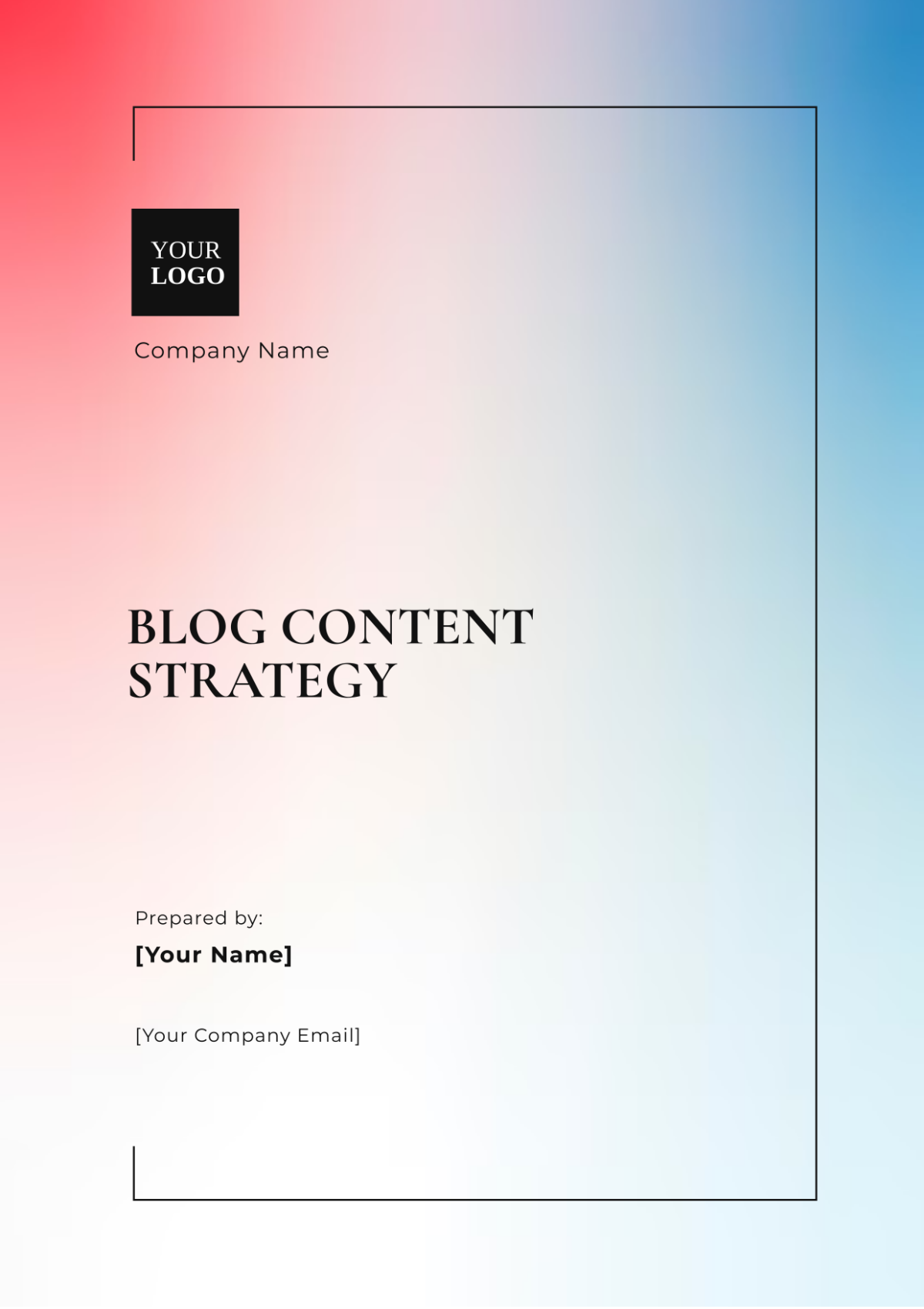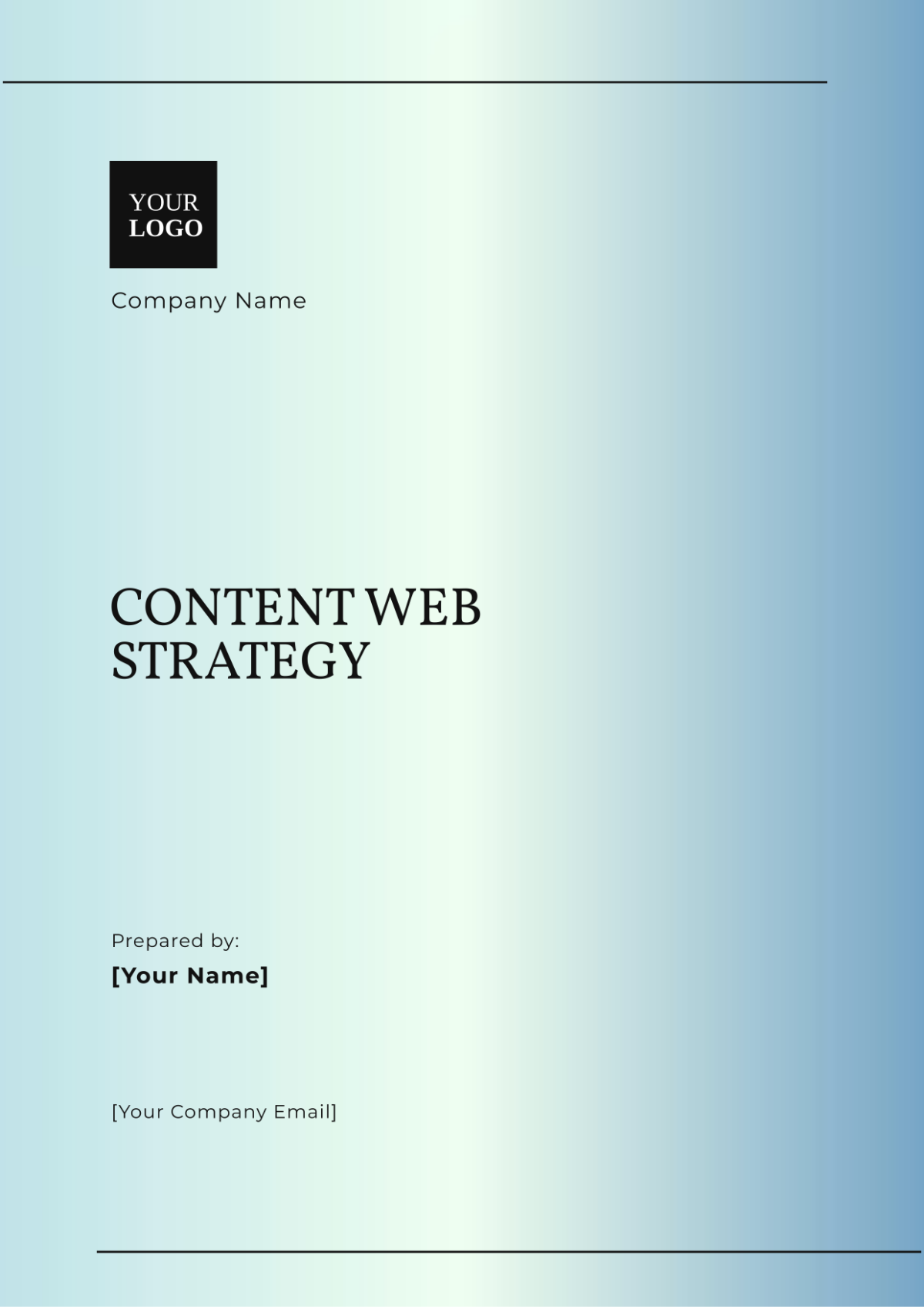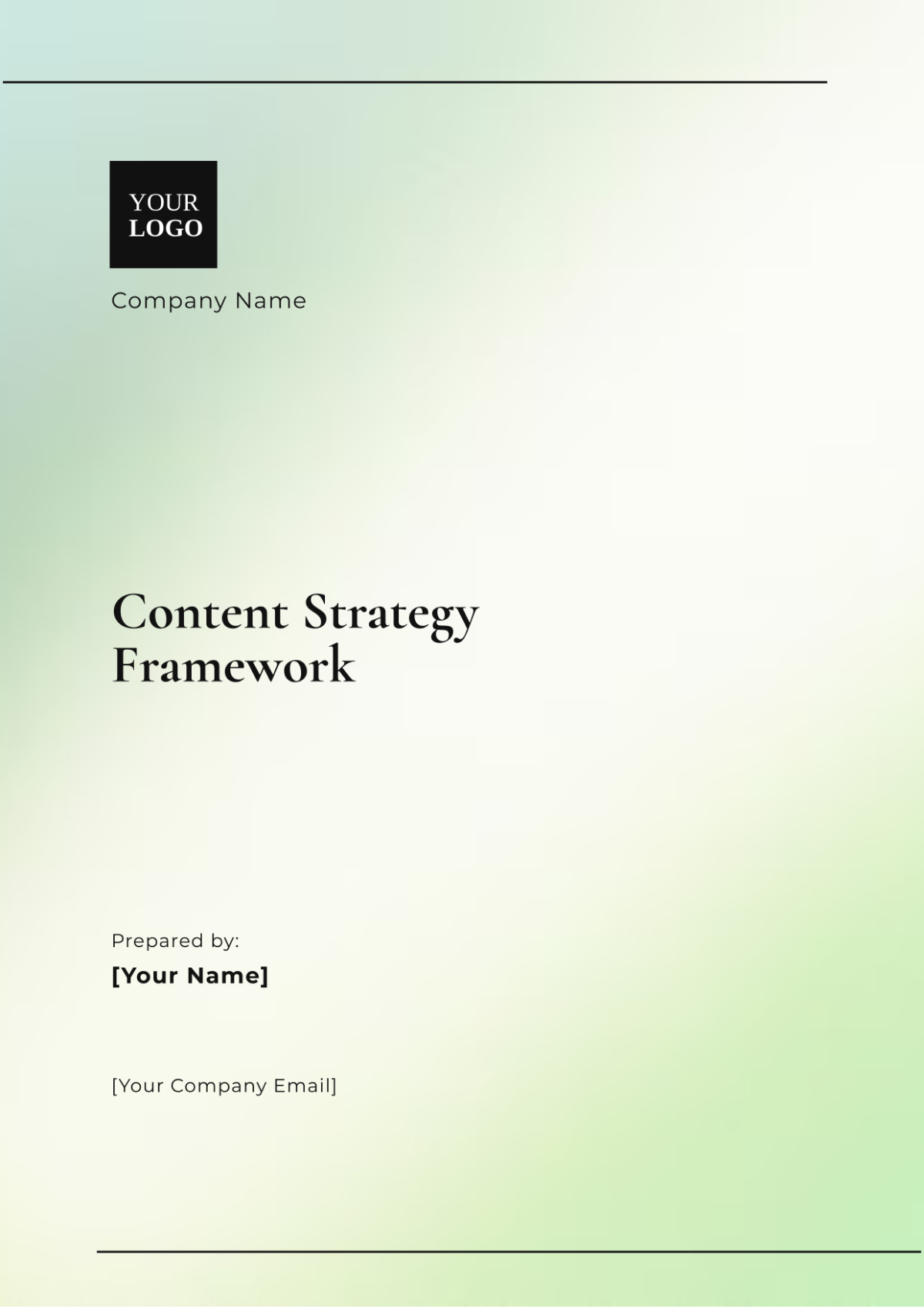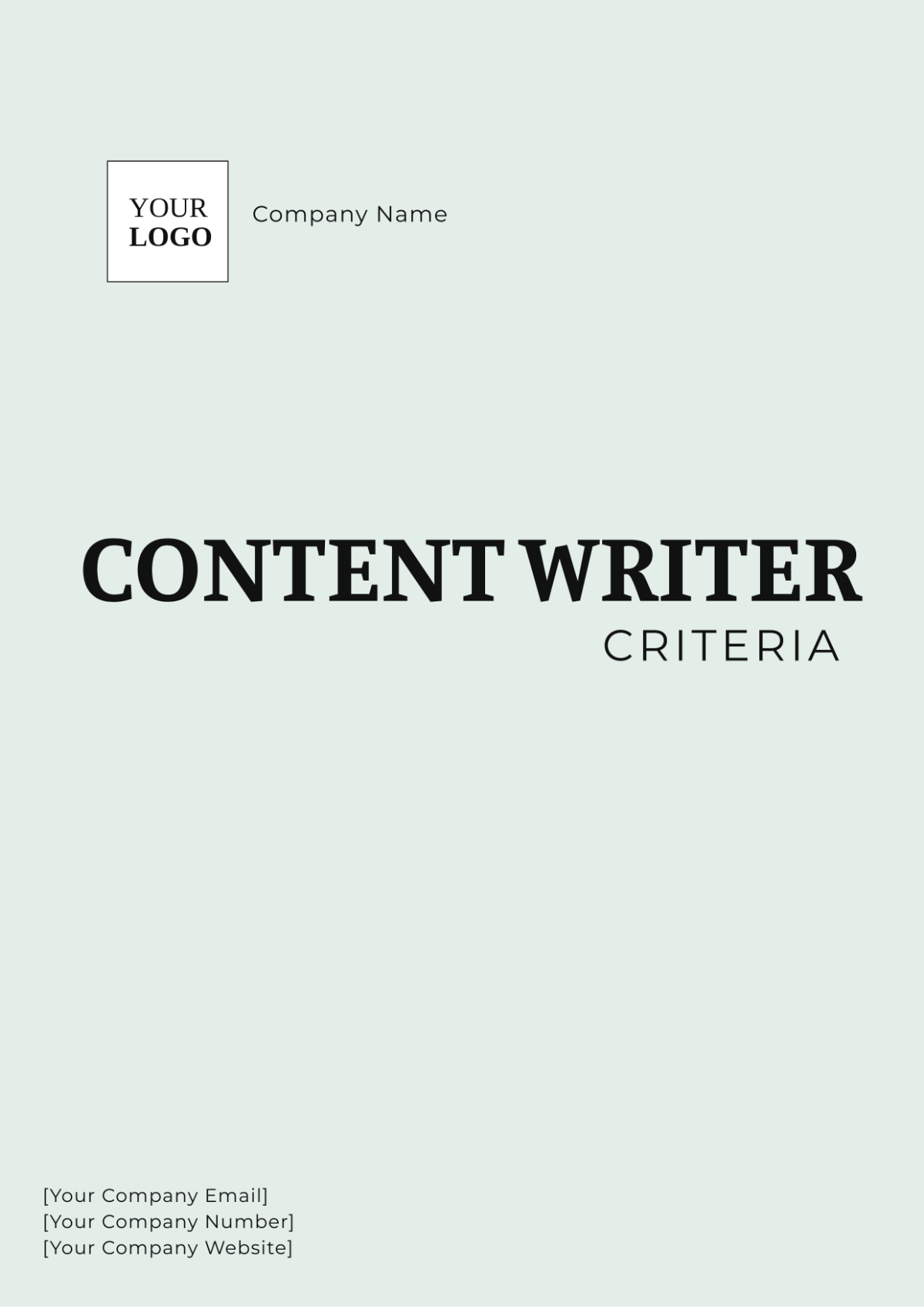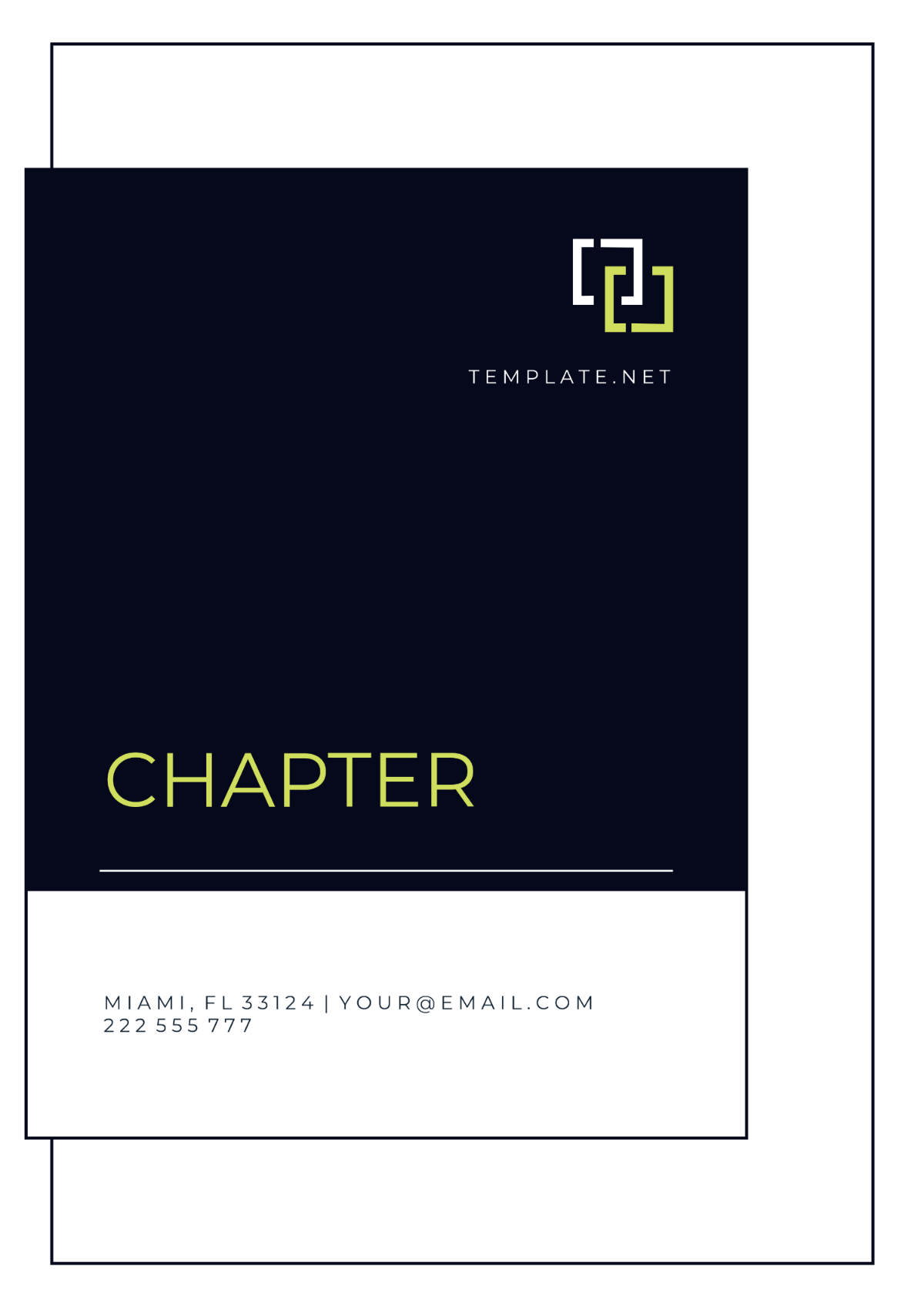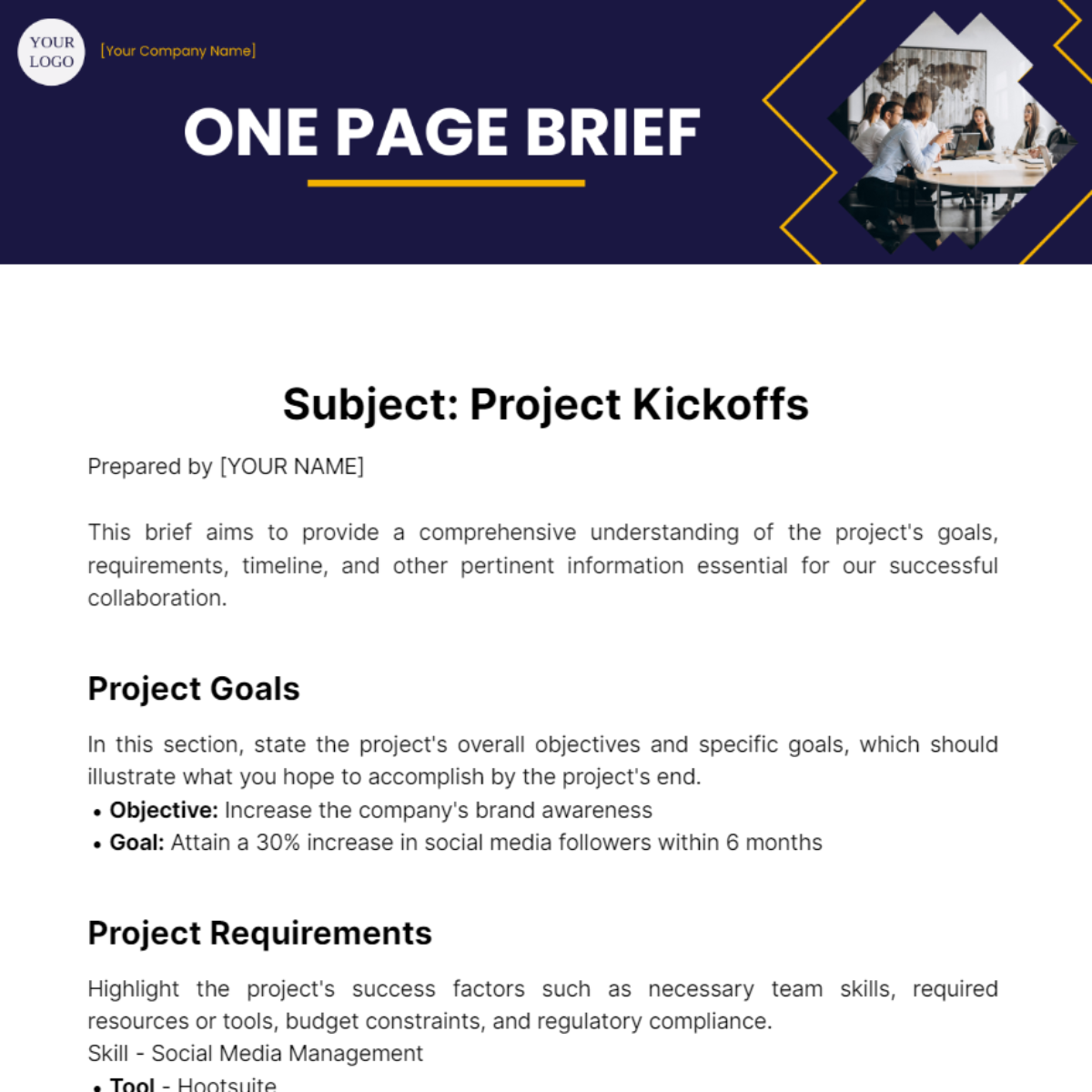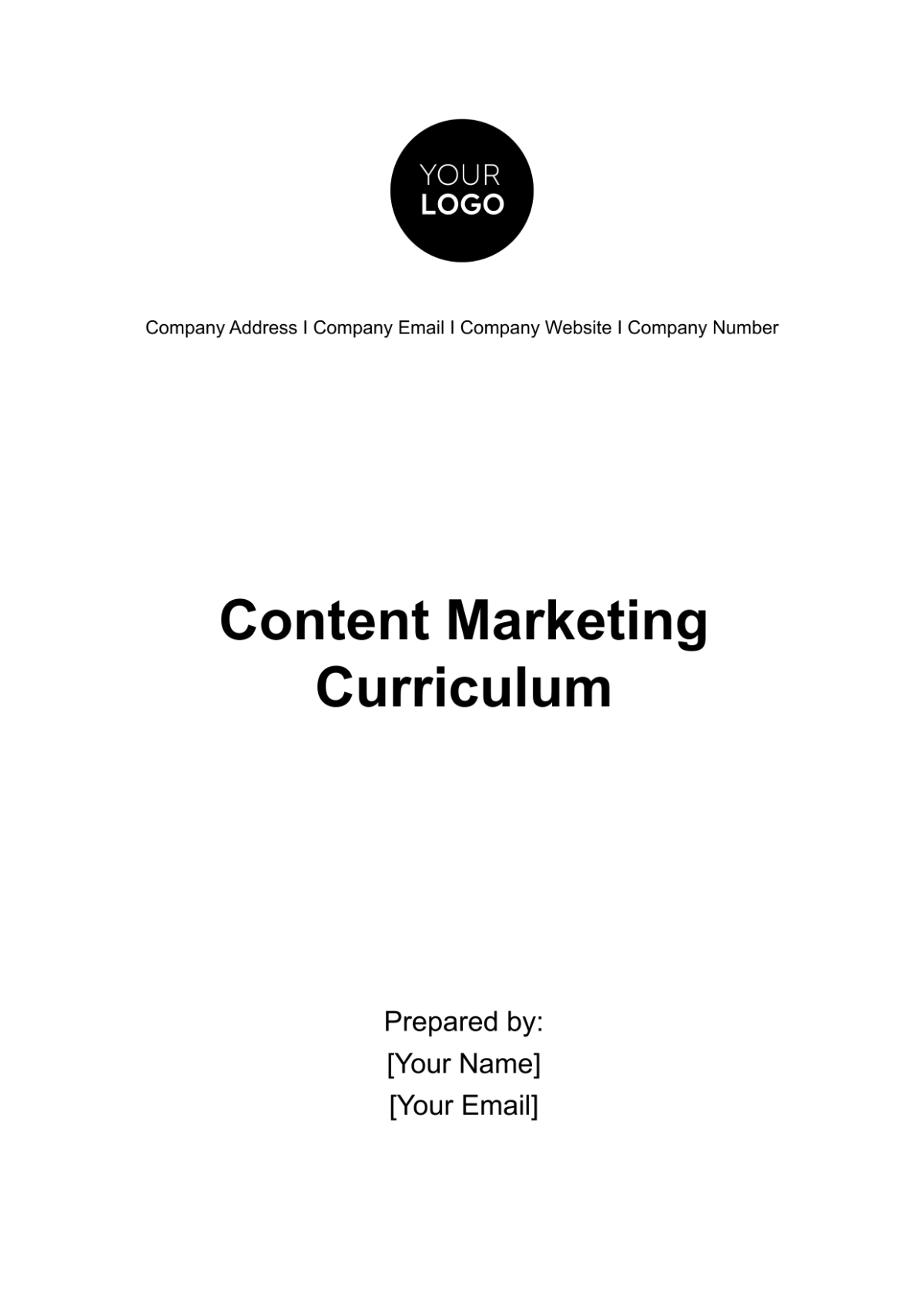Free High-Level Content Strategy Template
HIGH-LEVEL CONTENT STRATEGY
Created by: [Your Name]
I. Executive Summary
The High-Level Content Strategy for [Your Company Name] for 2055 outlines our strategic approach to content creation and management, aimed at achieving substantial business growth and solidifying our market position. Our content strategy is designed to boost brand visibility, engage our target audiences more effectively, and drive measurable outcomes. By aligning our content initiatives with our overarching business objectives, we plan to enhance our brand's authority, foster deeper customer relationships, and support strategic goals across various business functions.
II. Business Objectives
Increase Brand Awareness: Elevate [Your Company Name]’s presence in key markets and across digital platforms, aiming for a 40% increase in brand mentions and a 30% growth in social media followers.
Generate Leads: Drive high-quality leads through targeted content strategies, aiming for a 25% increase in lead generation and a 20% improvement in lead-to-customer conversion rates.
Improve Customer Retention: Enhance engagement with existing customers through personalized content, targeting a 15% increase in customer retention rates and a 10% rise in repeat purchases.
Support Product Launches: Create impactful content to support new product launches, aiming for a 50% increase in product-related engagement and a 30% rise in product inquiries.
Enhance Thought Leadership: Position [Your Company Name] as a leader in the tech industry by increasing the number of industry publications and speaking opportunities by 20%.
III. Target Audience
Primary Audience: Decision-makers and influencers in the technology sector, including CTOs, CIOs, and IT managers. This group seeks innovative solutions and insights into emerging technologies.
Secondary Audience: Potential customers interested in cutting-edge tech solutions and staying abreast of industry trends. Includes small to medium-sized enterprises (SMEs) and tech-savvy consumers.
Tertiary Audience: Industry analysts, media professionals, and potential strategic partners who influence or report on technology advancements and industry developments.
IV. Content Goals and KPIs
Content Goal | Key Performance Indicators (KPIs) |
|---|---|
Increase Brand Awareness | Website traffic increased by 40%, 30% growth in social media followers, and a 25% increase in brand mentions across digital platforms |
Generate Leads | 25% increase in qualified leads, 20% improvement in lead-to-customer conversion rate, and a 15% increase in lead acquisition through content-driven channels |
Improve Customer Retention | 15% increase in customer retention rates, 10% rise in repeat purchases, and enhanced customer satisfaction scores through feedback surveys |
Support Product Launches | 50% increase in product launch engagement metrics, 30% rise in product inquiries and downloads, and successful execution of at least three major product launch campaigns |
Enhance Thought Leadership | 20% increase in published industry articles, 15% growth in speaking engagements, and a 10% rise in citations and references in industry reports |
V. Content Themes and Messaging
Theme | Message |
|---|---|
Innovation | "Empowering the future with groundbreaking technology and innovative solutions that drive industry evolution." |
Sustainability | "Leading the way in sustainable technology practices and green solutions that align with our commitment to the environment." |
Customer Success | "Transforming businesses through tailored solutions and exceptional support, ensuring our clients achieve their goals." |
Industry Insights | "Delivering cutting-edge insights and trends to help industry professionals stay ahead in a rapidly changing tech landscape." |
Global Impact | "Leveraging technology to address global challenges and create positive change across communities and industries." |
VI. Content Channels and Formats
Channel | Format |
|---|---|
Website | In-depth blog posts, comprehensive whitepapers, detailed case studies, and interactive infographics |
Social Media | Engaging infographics, short-form videos, interactive posts, and live Q&A sessions |
Regular newsletters, promotional email campaigns, personalized product updates, and targeted lead-nurturing emails | |
Webinars | Live interactive webinars, on-demand recorded sessions, expert panel discussions, and educational tutorials |
Podcasts | Industry expert interviews, technology trend discussions, and thought leadership episodes |
VII. Content Governance
Aspect | Details |
|---|---|
Roles and Responsibilities | Content creators (writers, designers, producers), editors (review and quality assurance), strategists (planning and alignment), and approvers (final sign-off and compliance) |
Approval Process | Initial draft review by content creators, feedback and revisions by editors, final approval by content strategists, and compliance check by brand managers |
Content Guidelines | Adherence to style guide, consistent tone of voice, brand message alignment, and quality standards for visual and written content |
Content Management | Utilization of a content management system (CMS) for publishing, analytics tools for performance tracking, and collaboration platforms for team coordination |
VIII. Content Calendar
Month | Content | Deadline | Responsible |
|---|---|---|---|
January | New Year Innovation Blog Post | January 15 | Content Team |
February | Product Launch Webinar | February 10 | Marketing Lead |
March | Sustainability Report | March 5 | Content Strategist |
April | Industry Trends Infographic | April 20 | Design Team |
May | Global Impact Case Study | May 12 | Research Team |
June | Mid-Year Review Webinar | June 18 | Marketing Team |
July | Customer Success Stories | July 25 | Content Writers |
August | Innovation Podcast Series | August 10 | Podcast Producer |
September | Tech Trends E-Book | September 15 | Design & Content Teams |
October | Annual Industry Insights Report | October 30 | Research Team |
November | Holiday Promotions and Product Guides | November 20 | Marketing Lead |
December | Year in Review Infographic | December 10 | Design Team |
IX. Budget and Resources
Resource | Allocation | Budget |
|---|---|---|
Content Creation | Hiring copywriters, graphic designers, and video producers for high-quality content development | $60,000 |
Content Distribution | Social media advertising, email marketing tools, and paid promotions to enhance reach and engagement | $35,000 |
Technology | Subscription to CMS, analytics tools, and design software for effective content management and analysis | $25,000 |
Training and Development | Workshops, training sessions, and professional development programs to upskill content and marketing teams | $15,000 |
